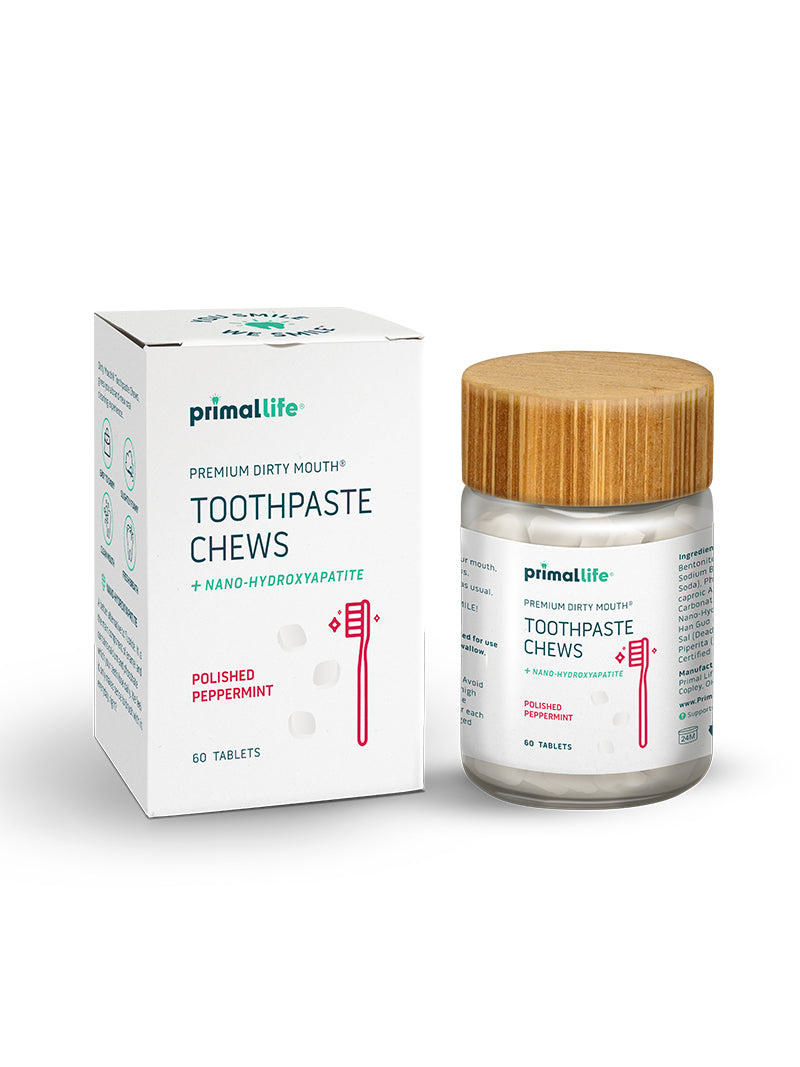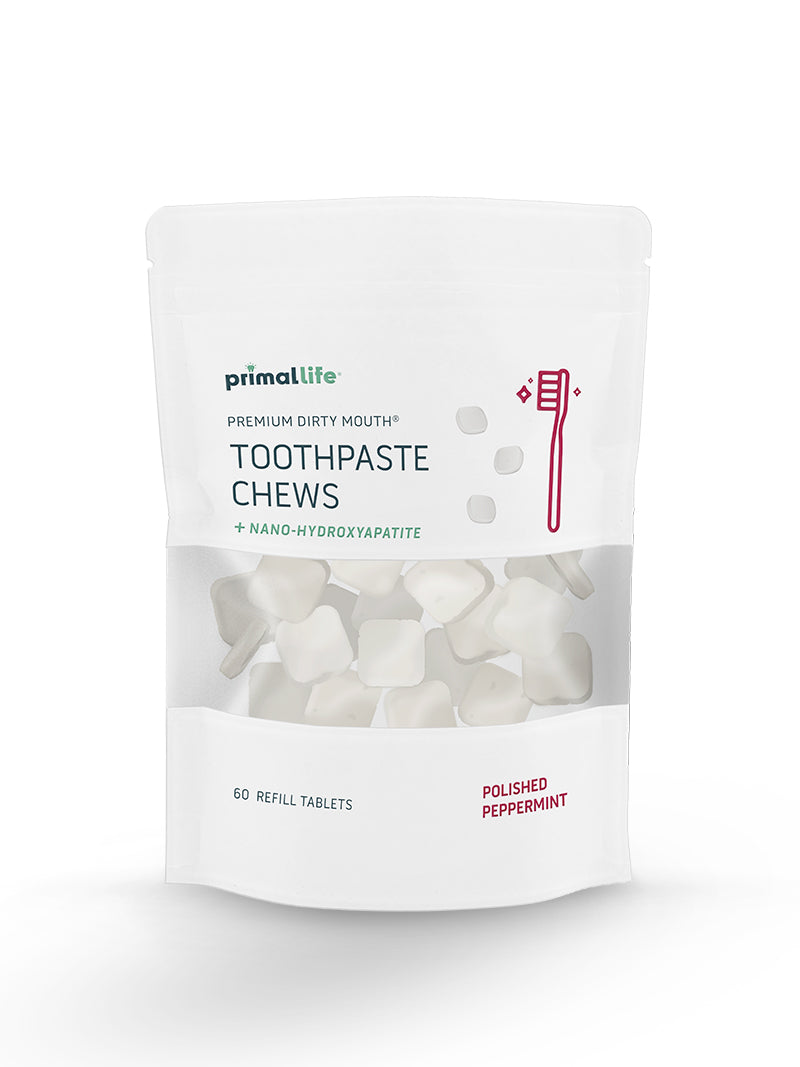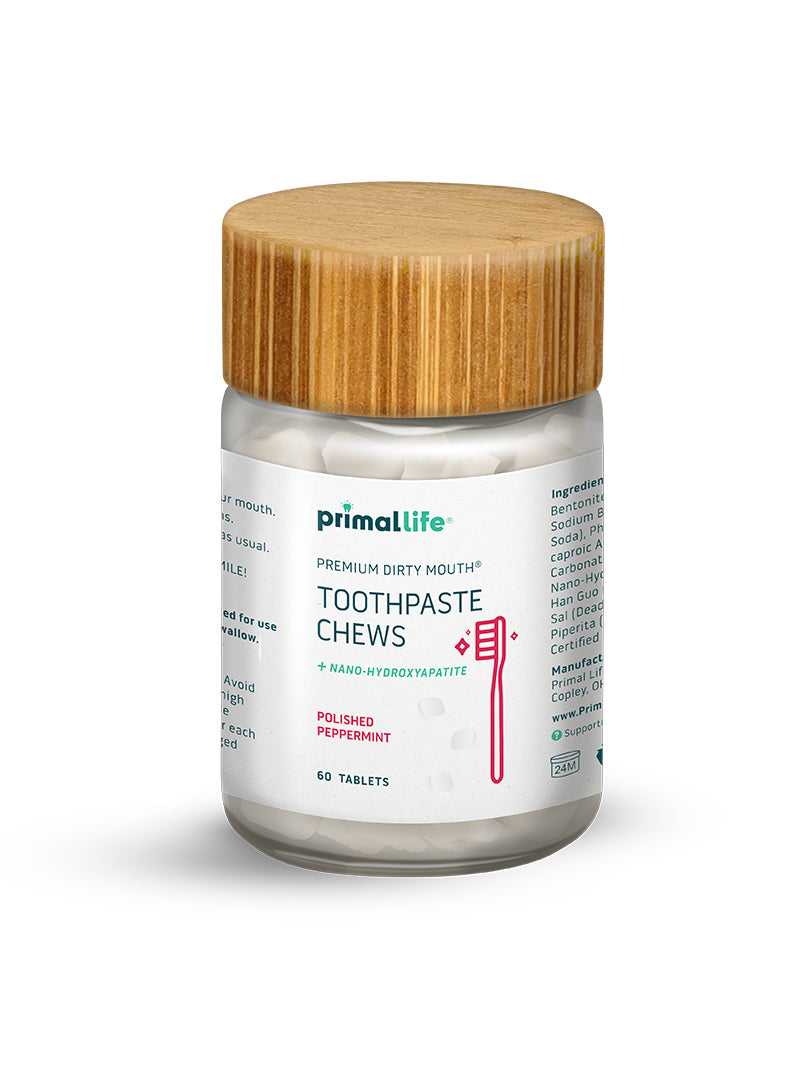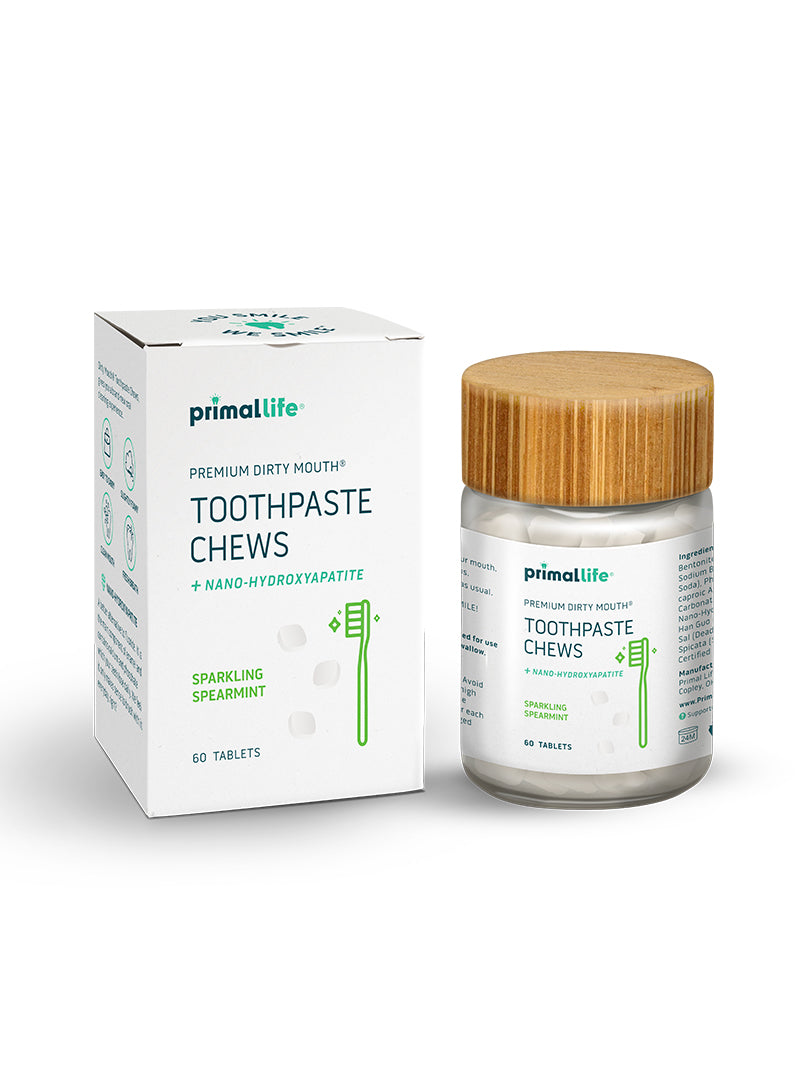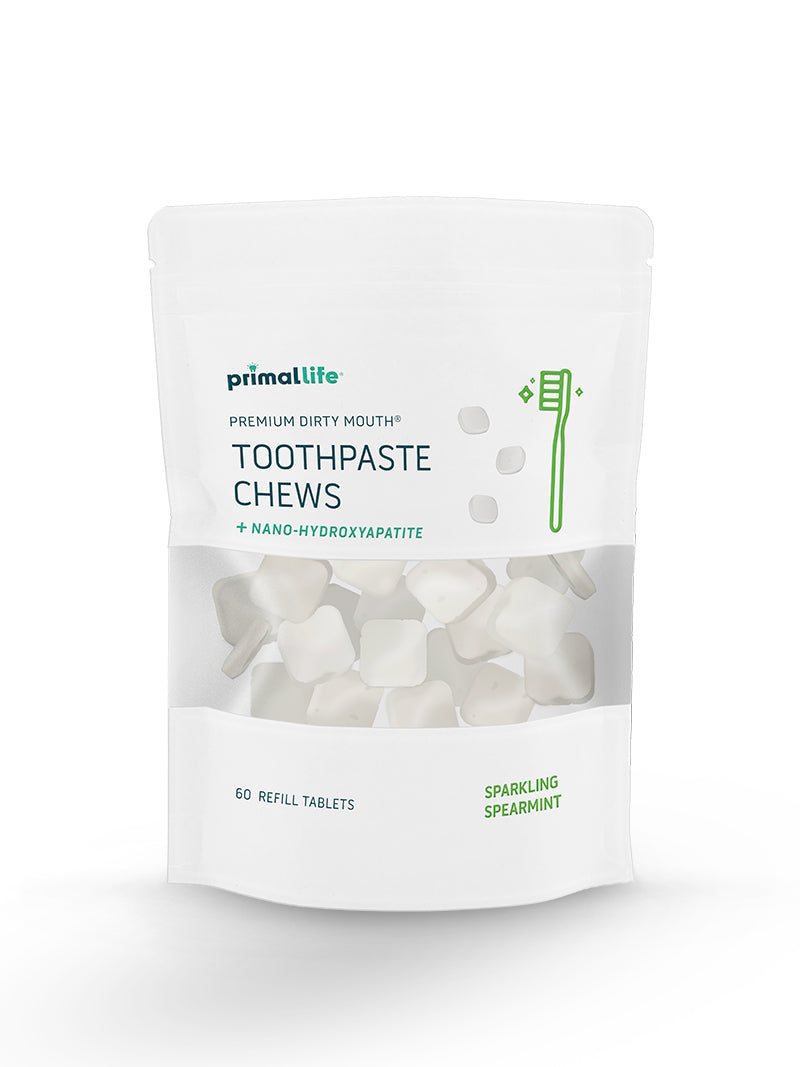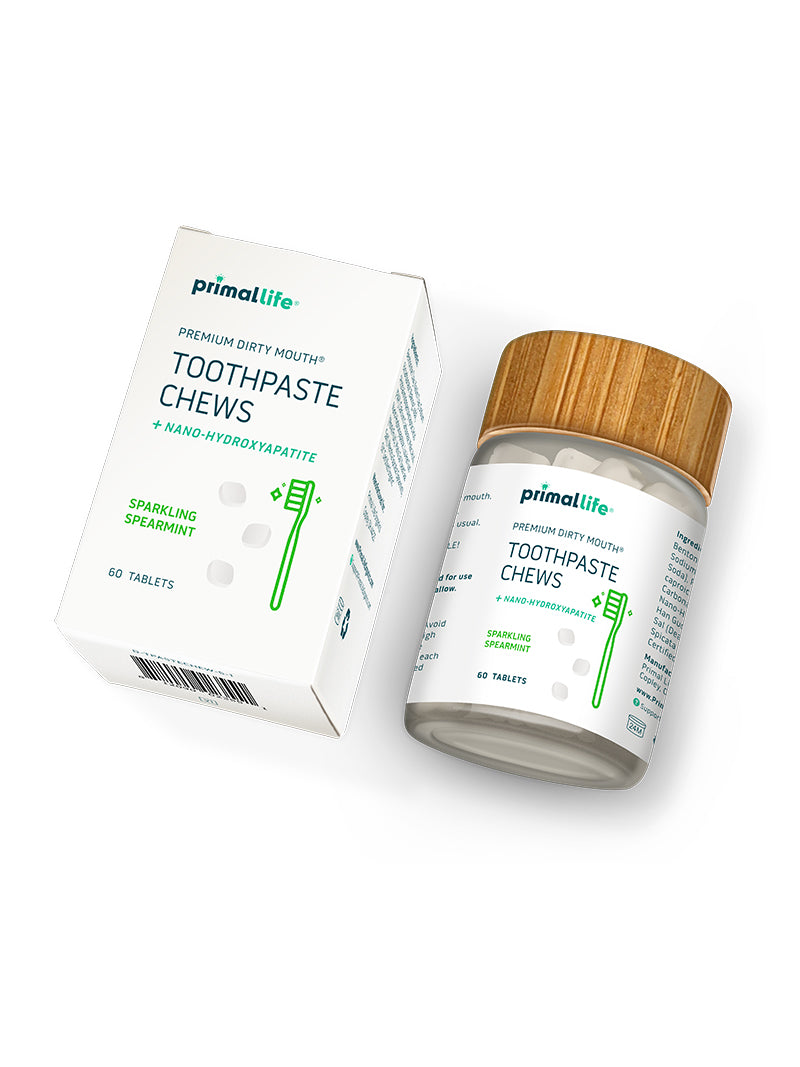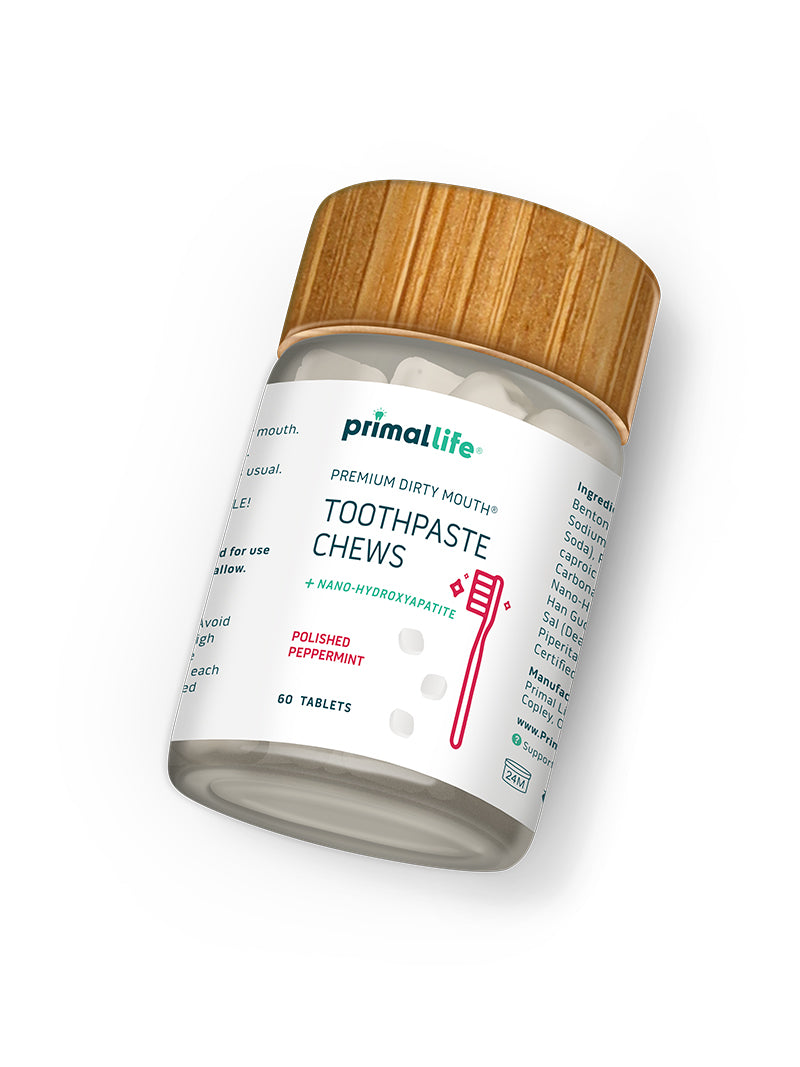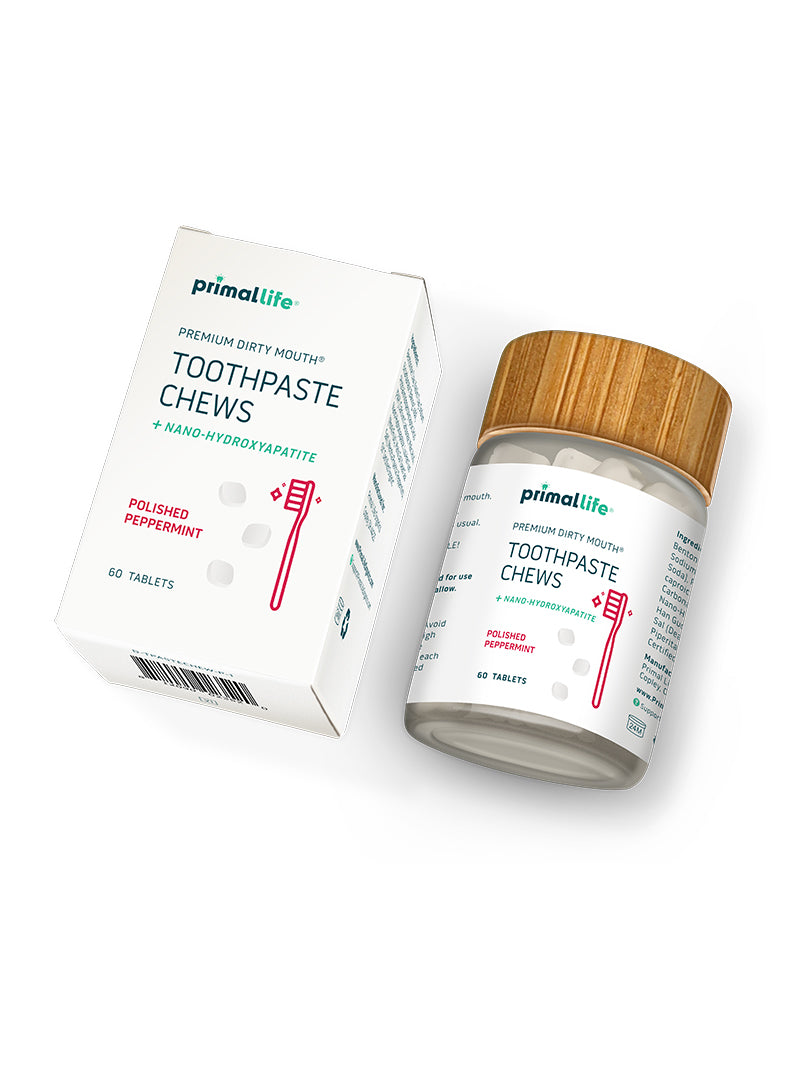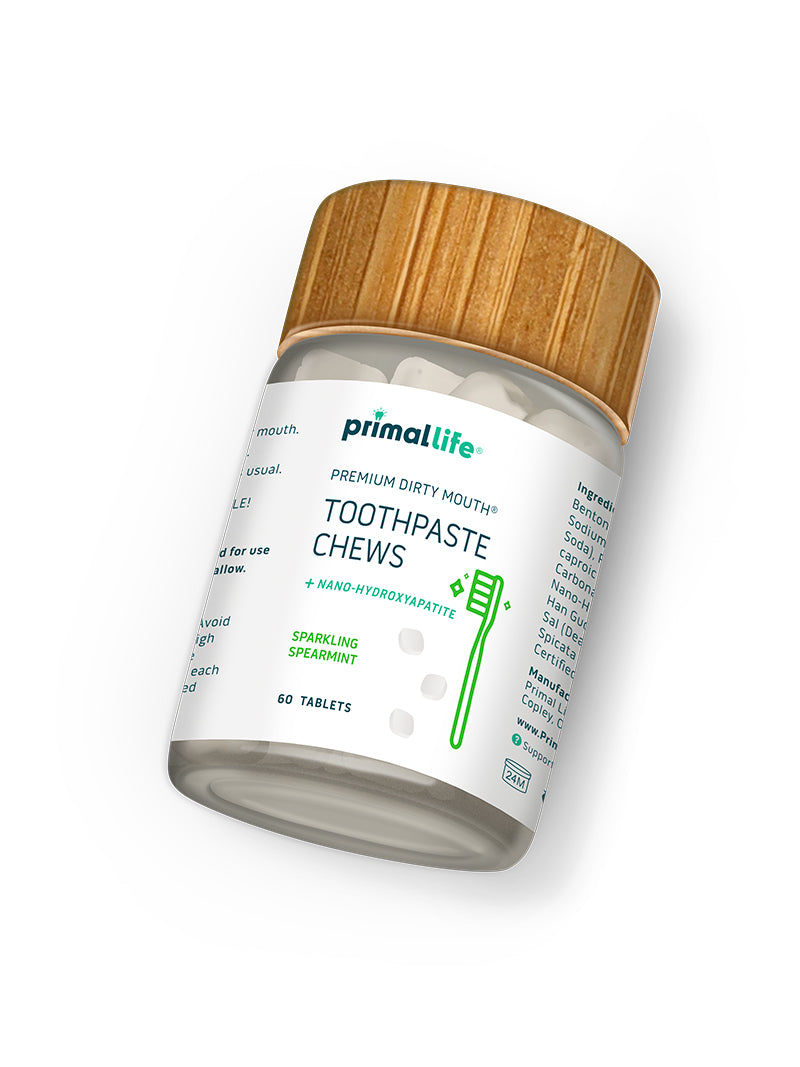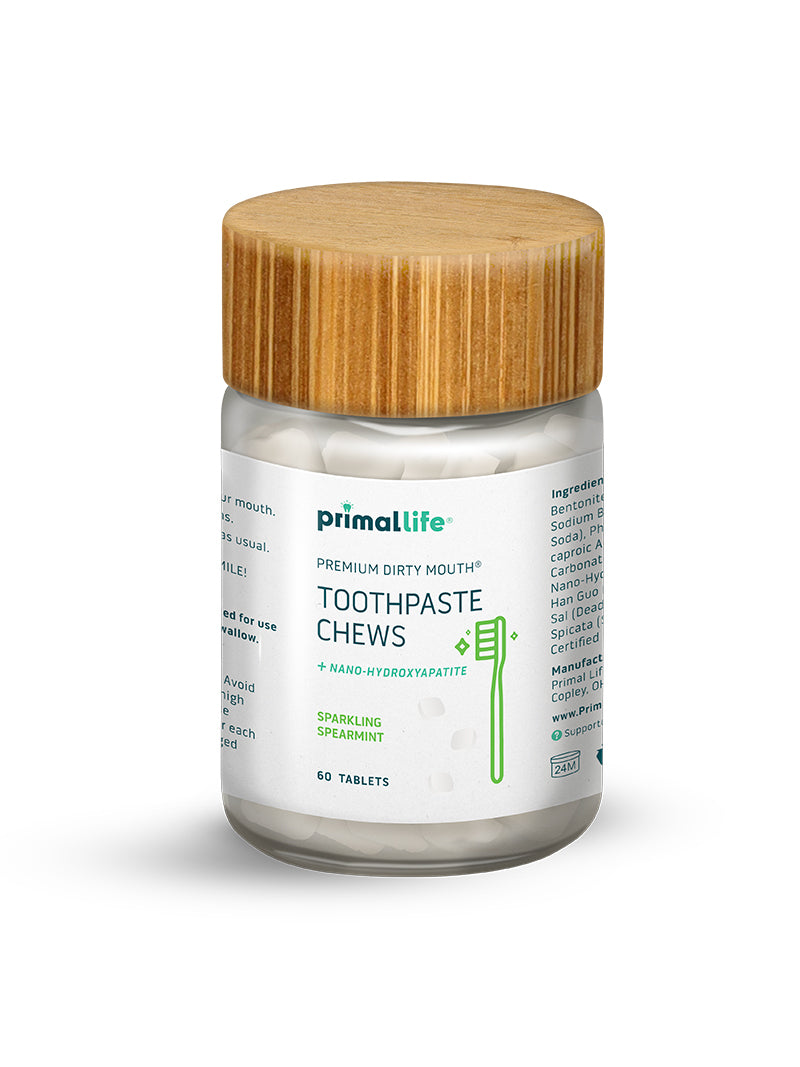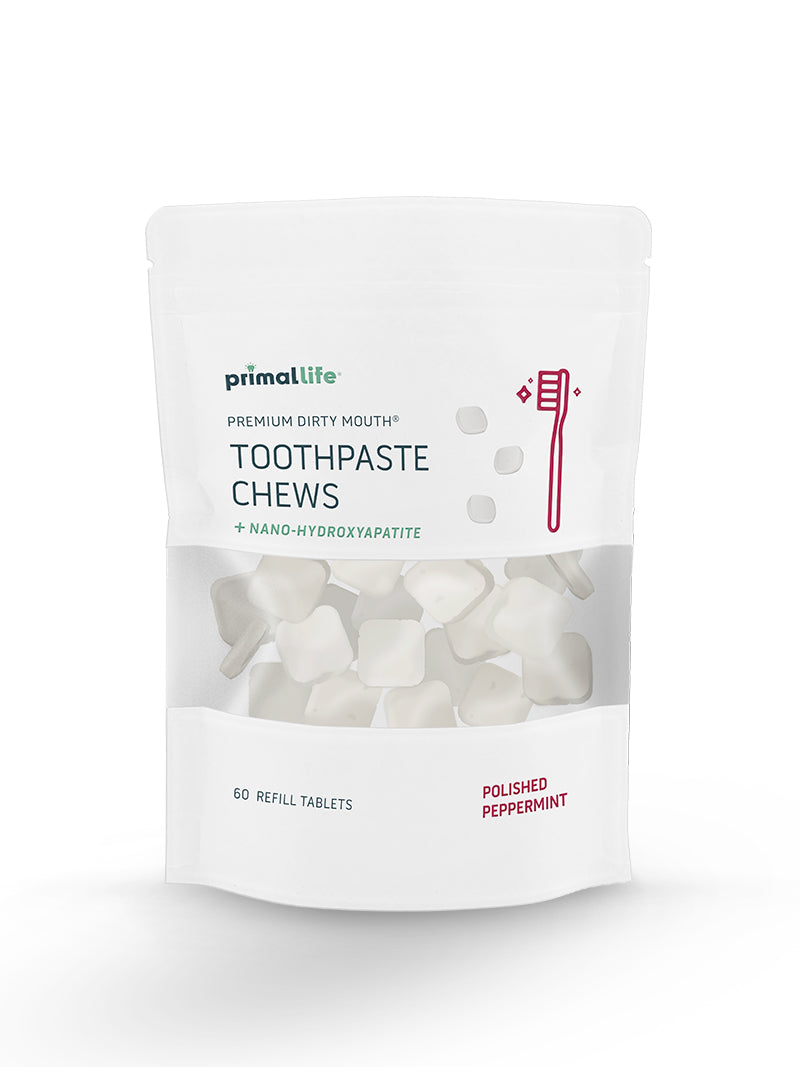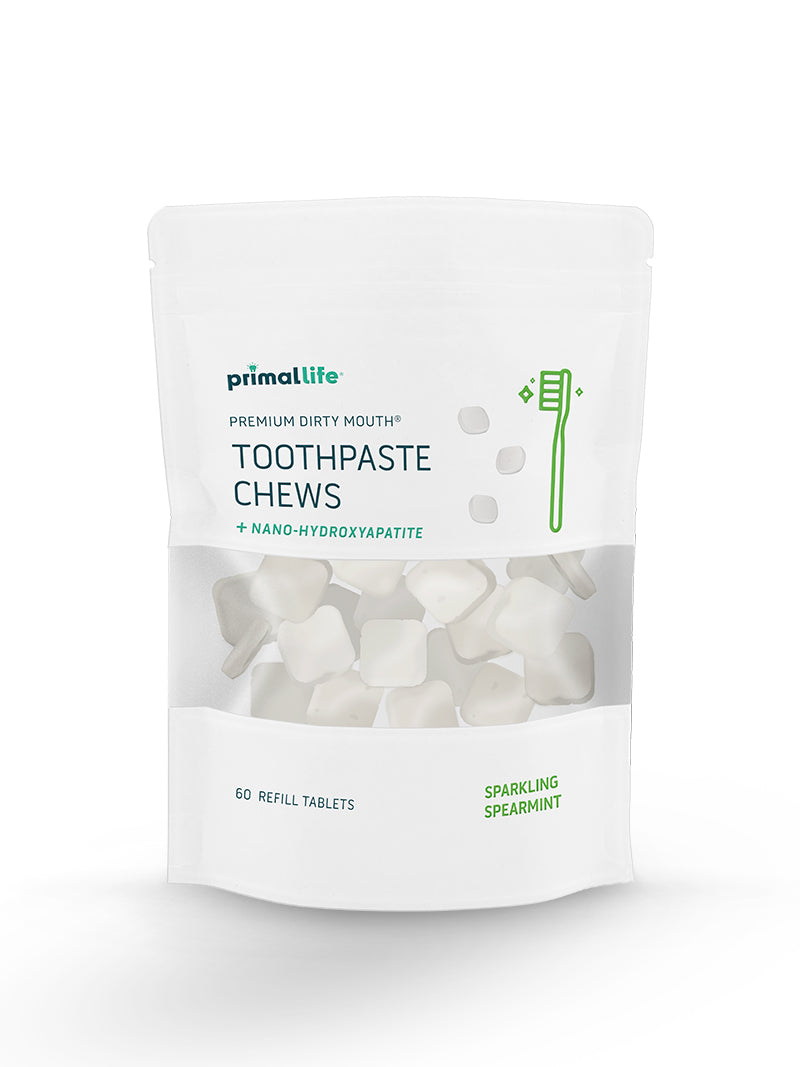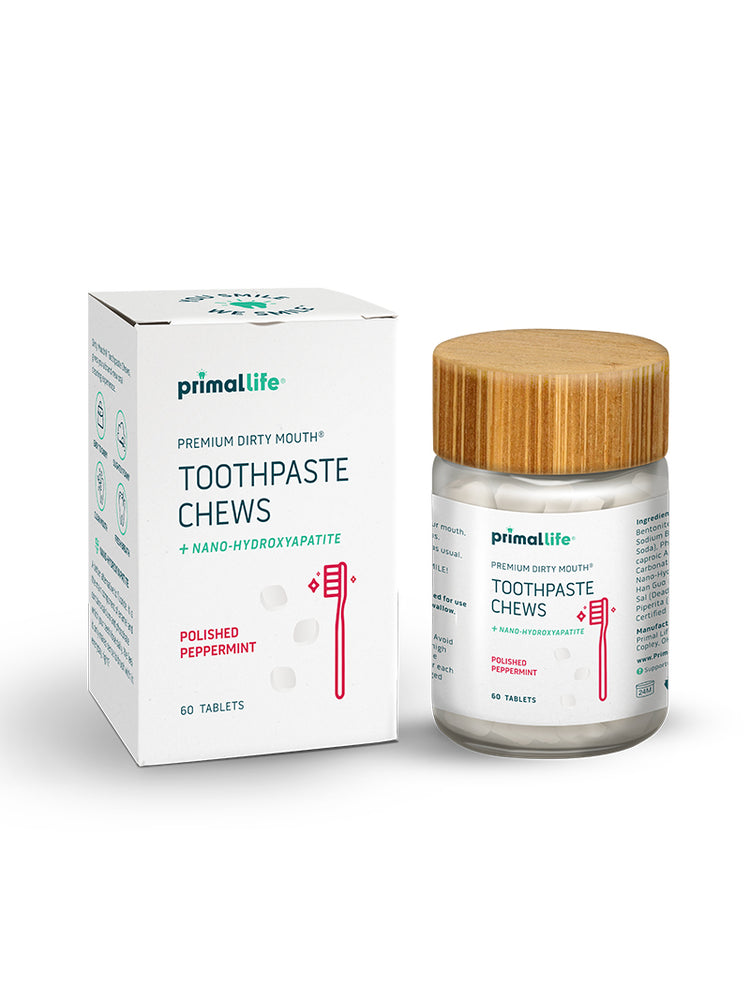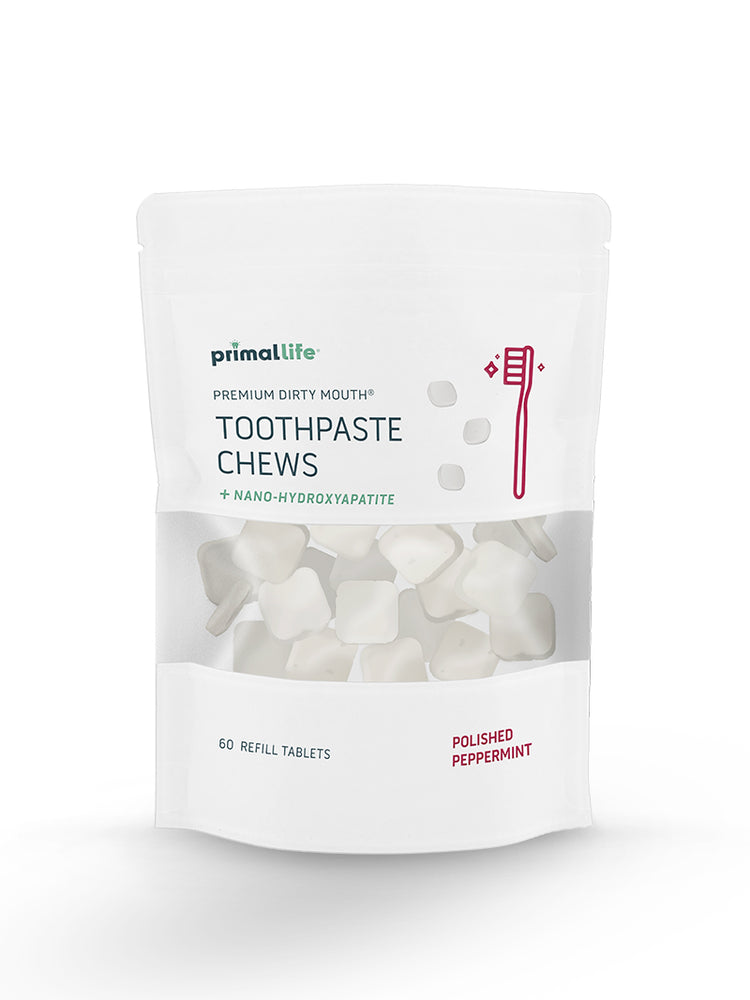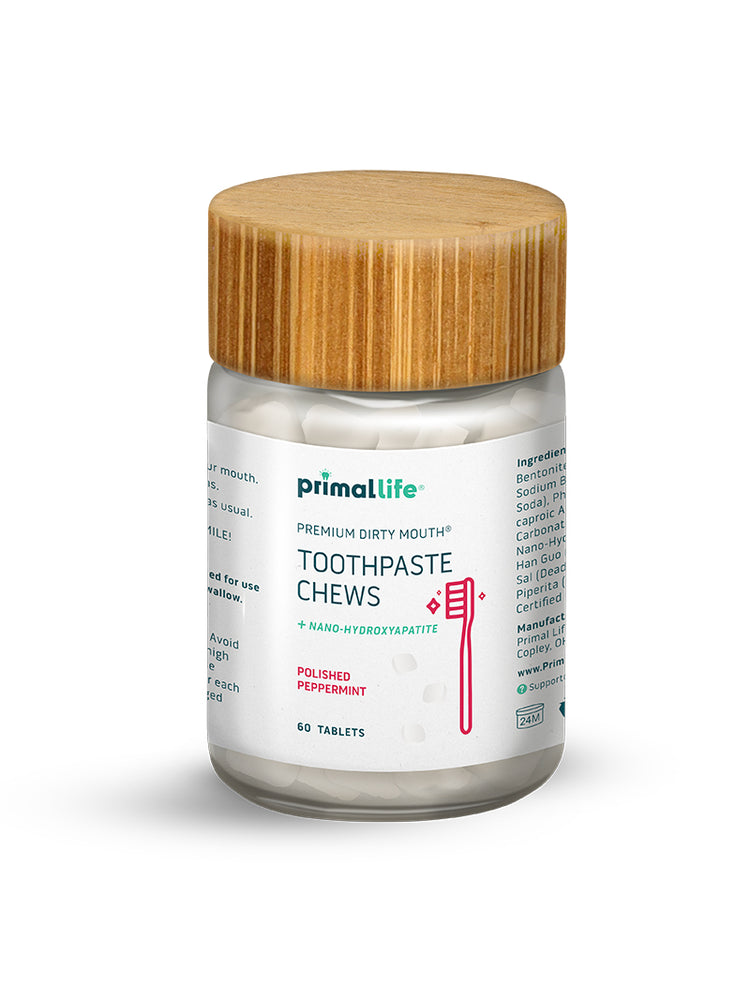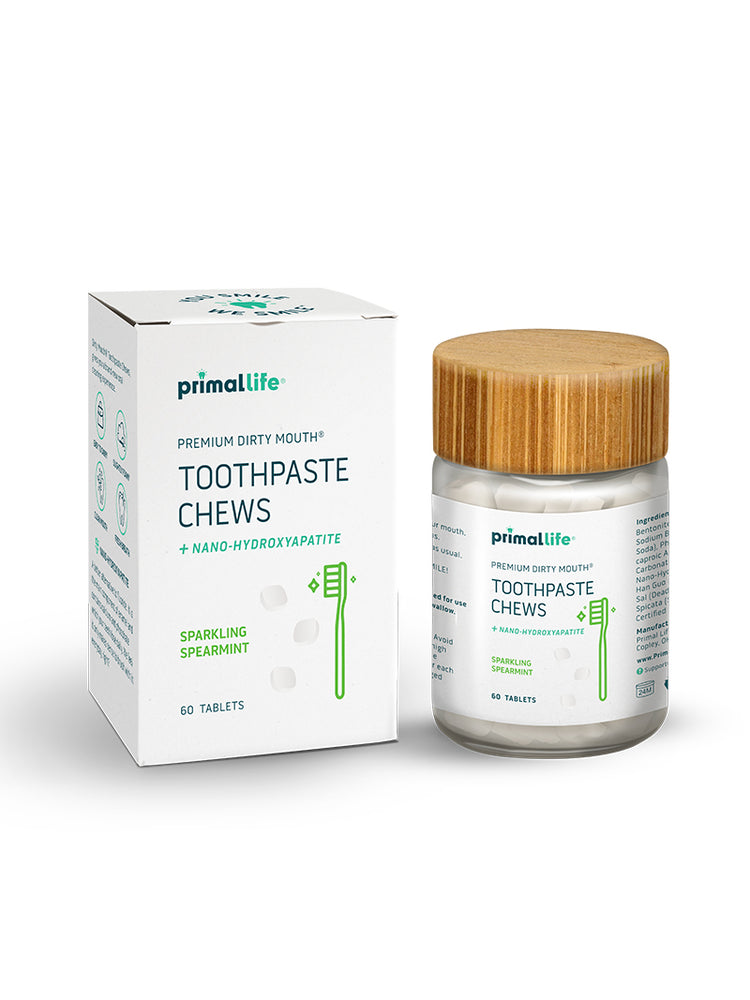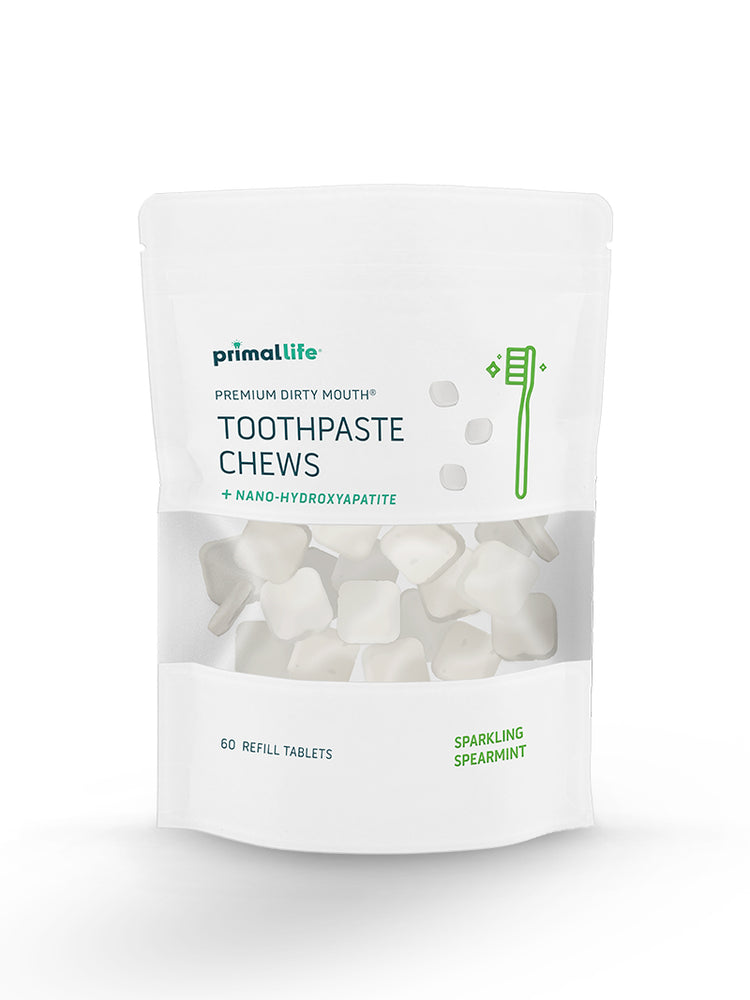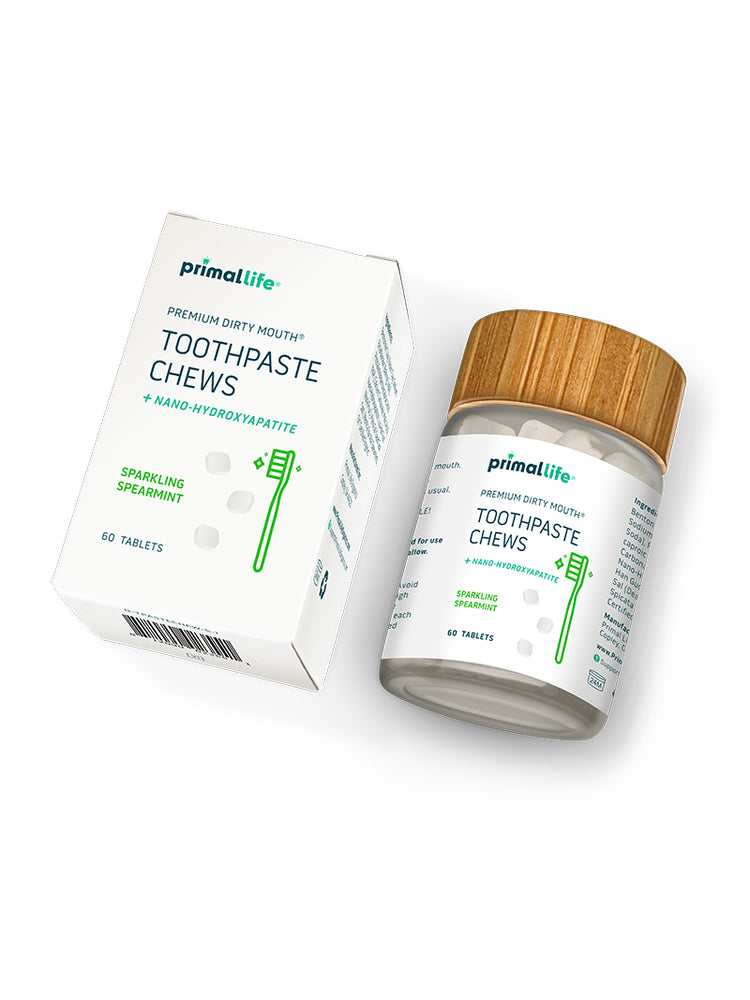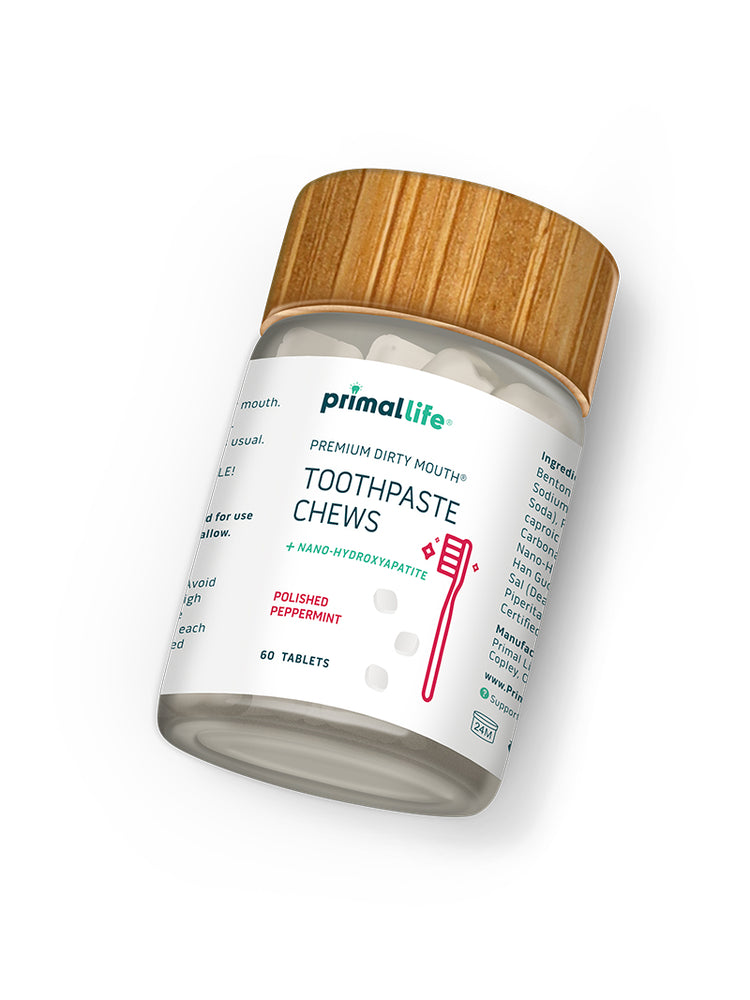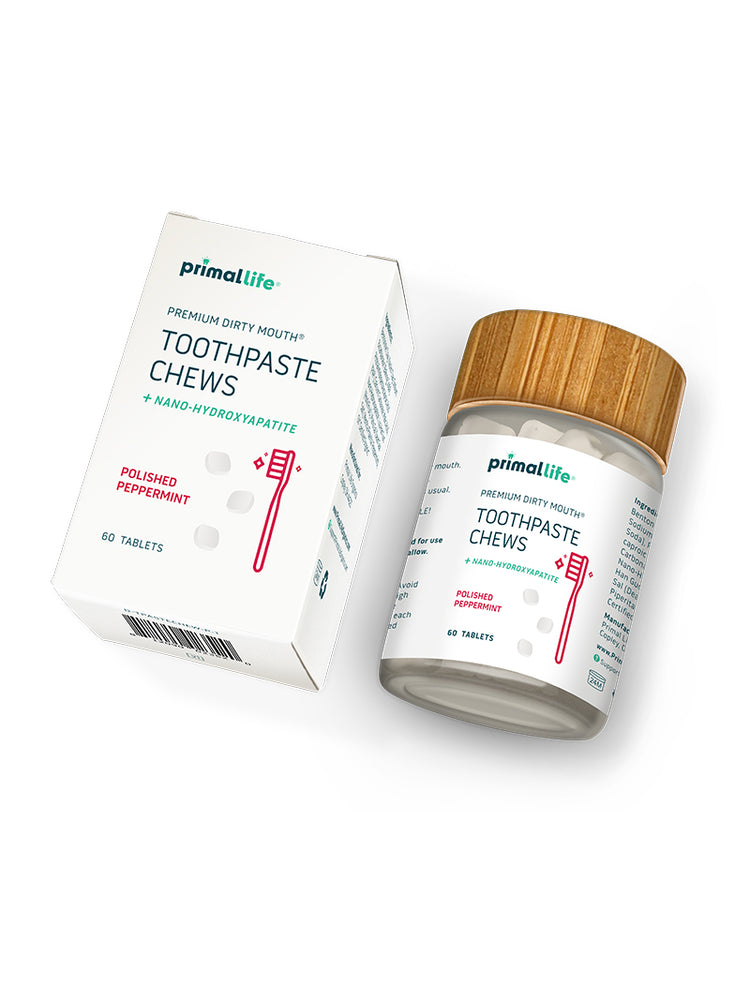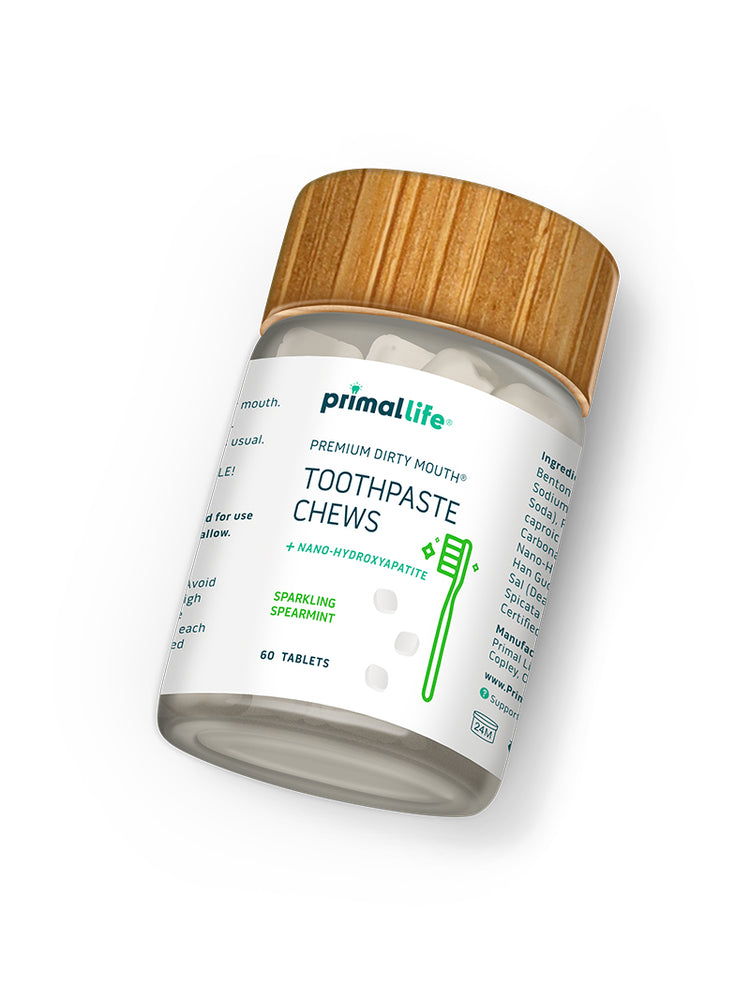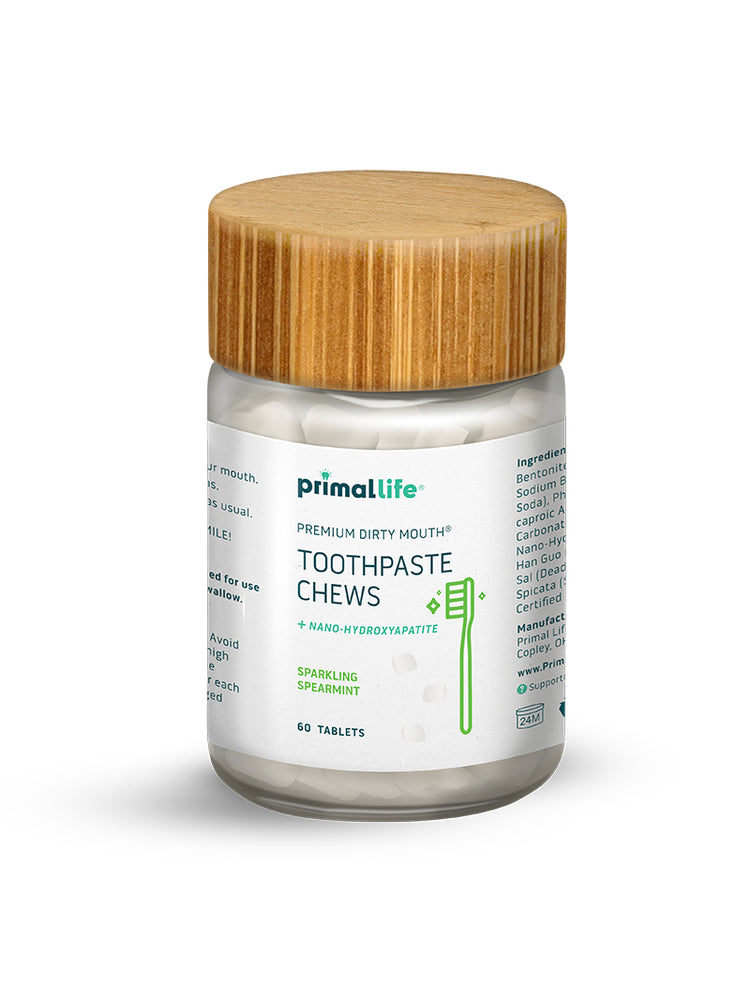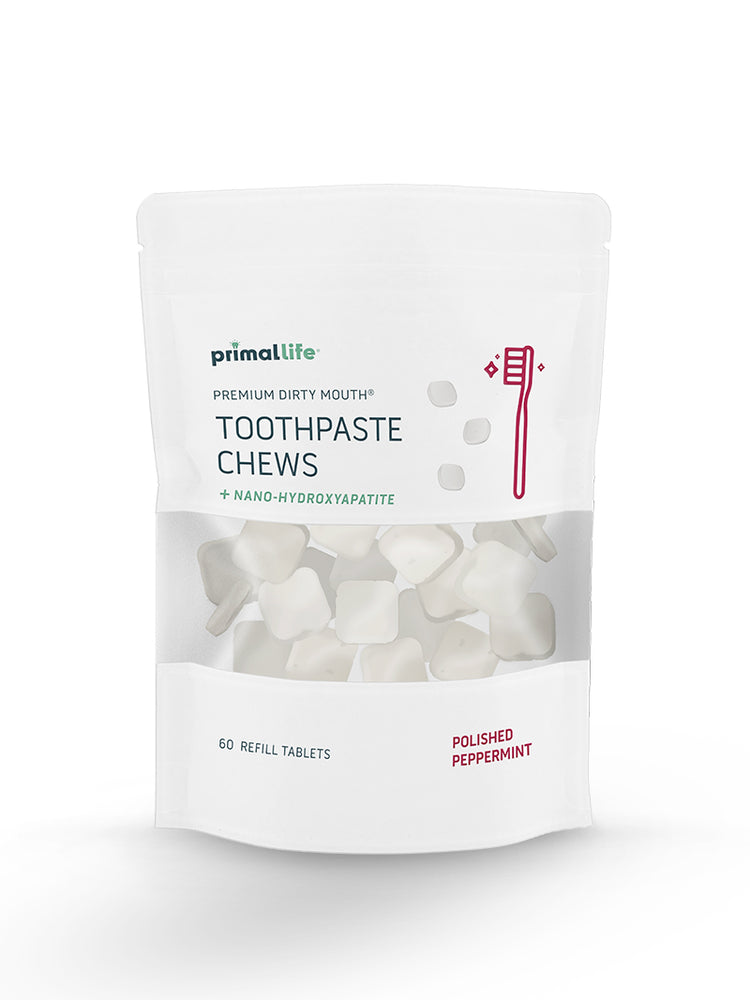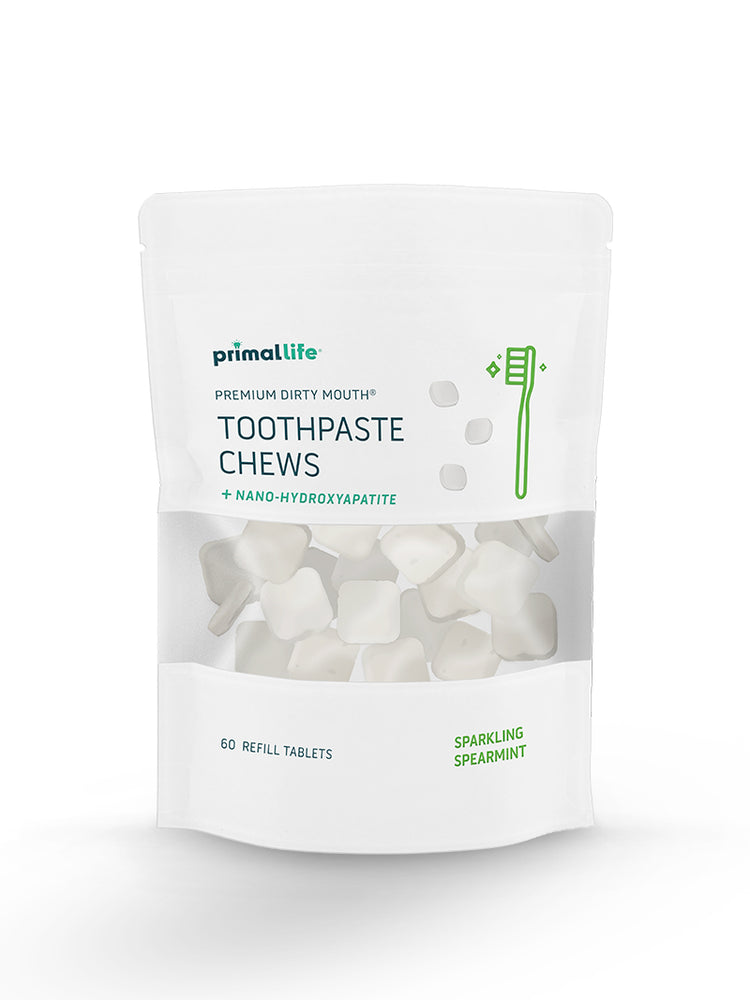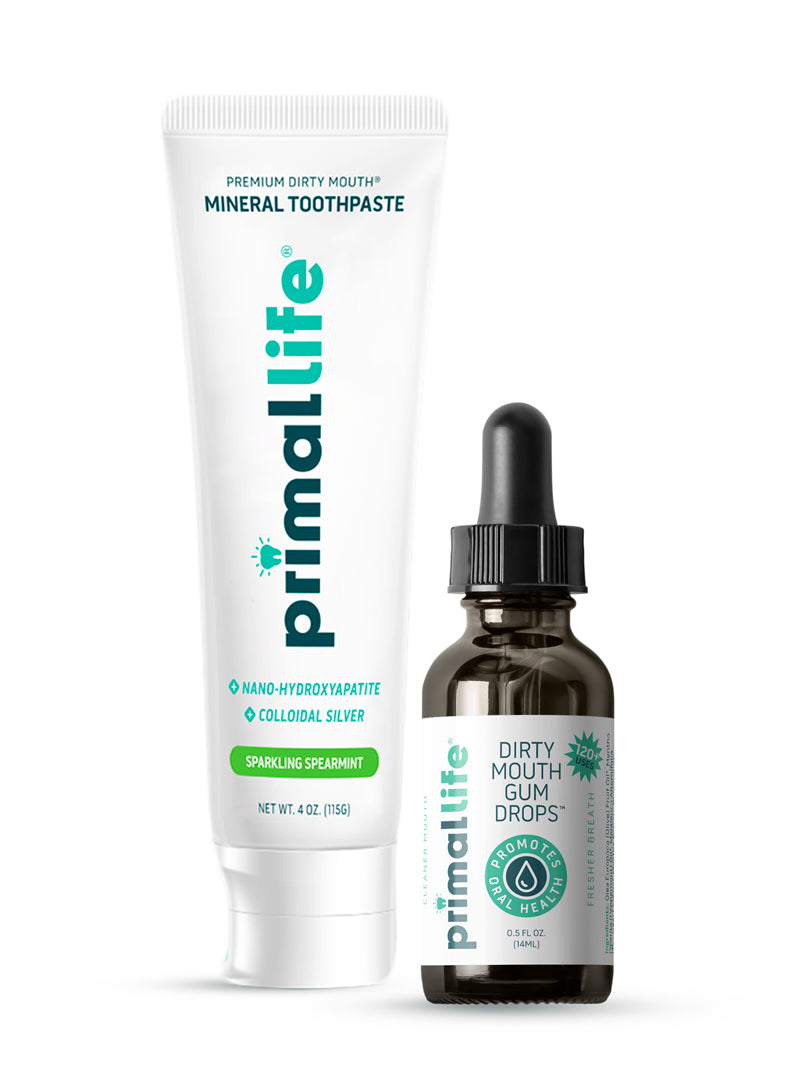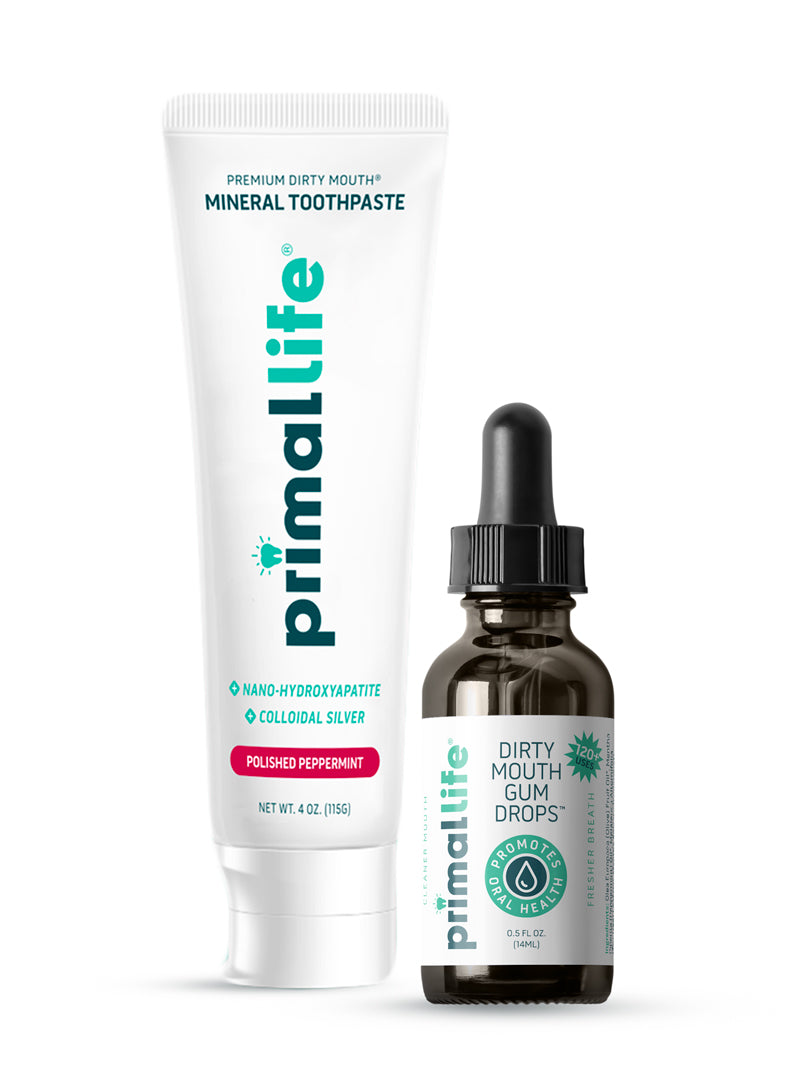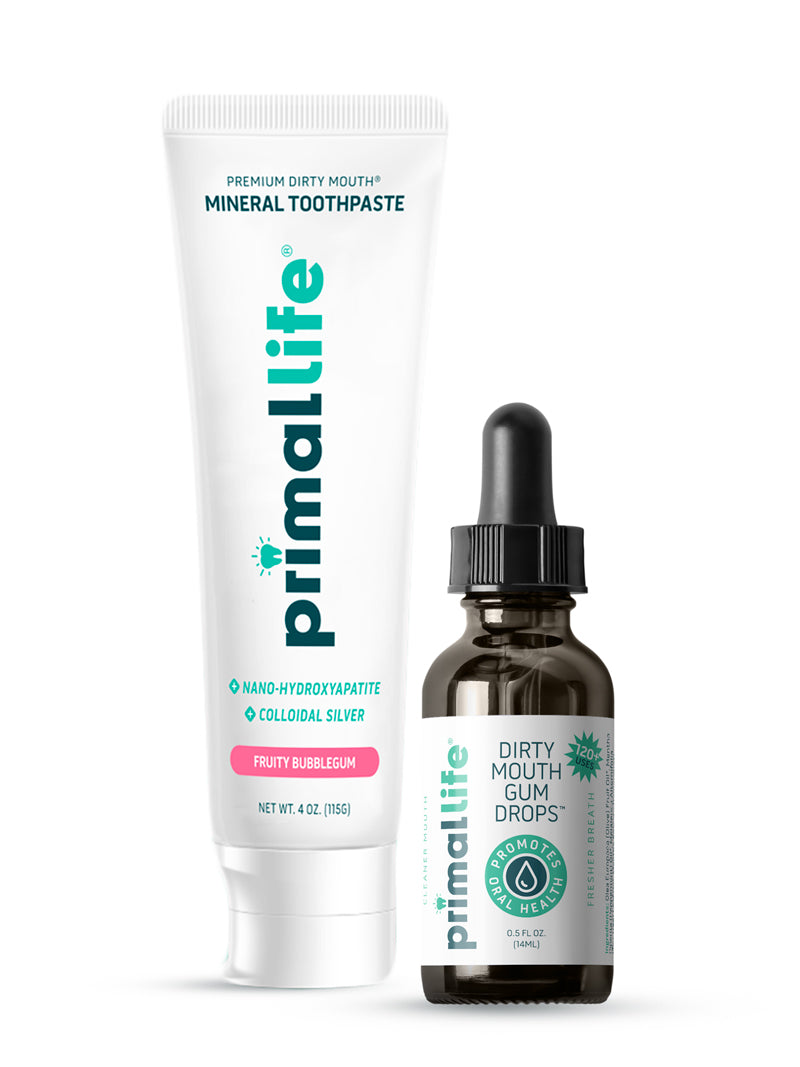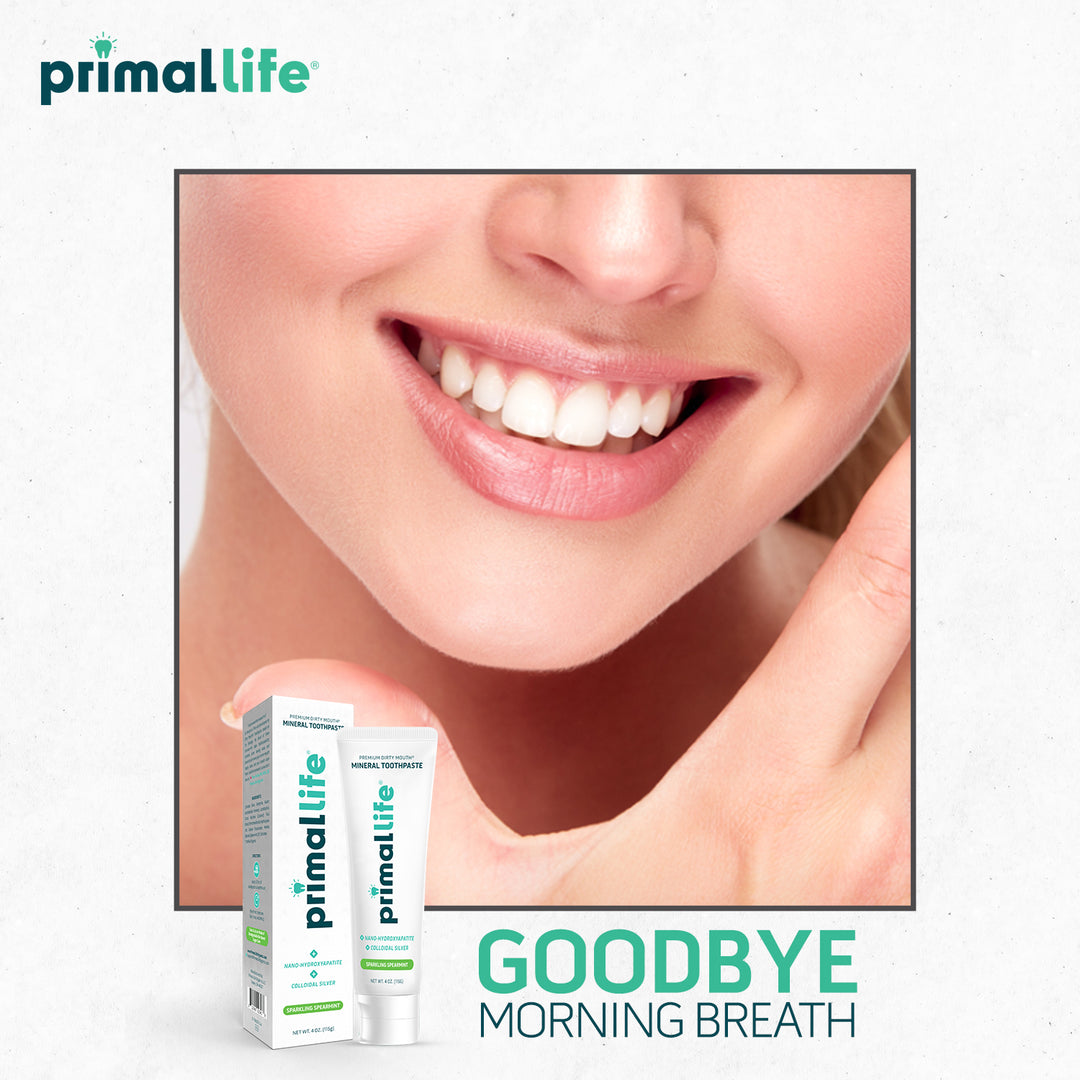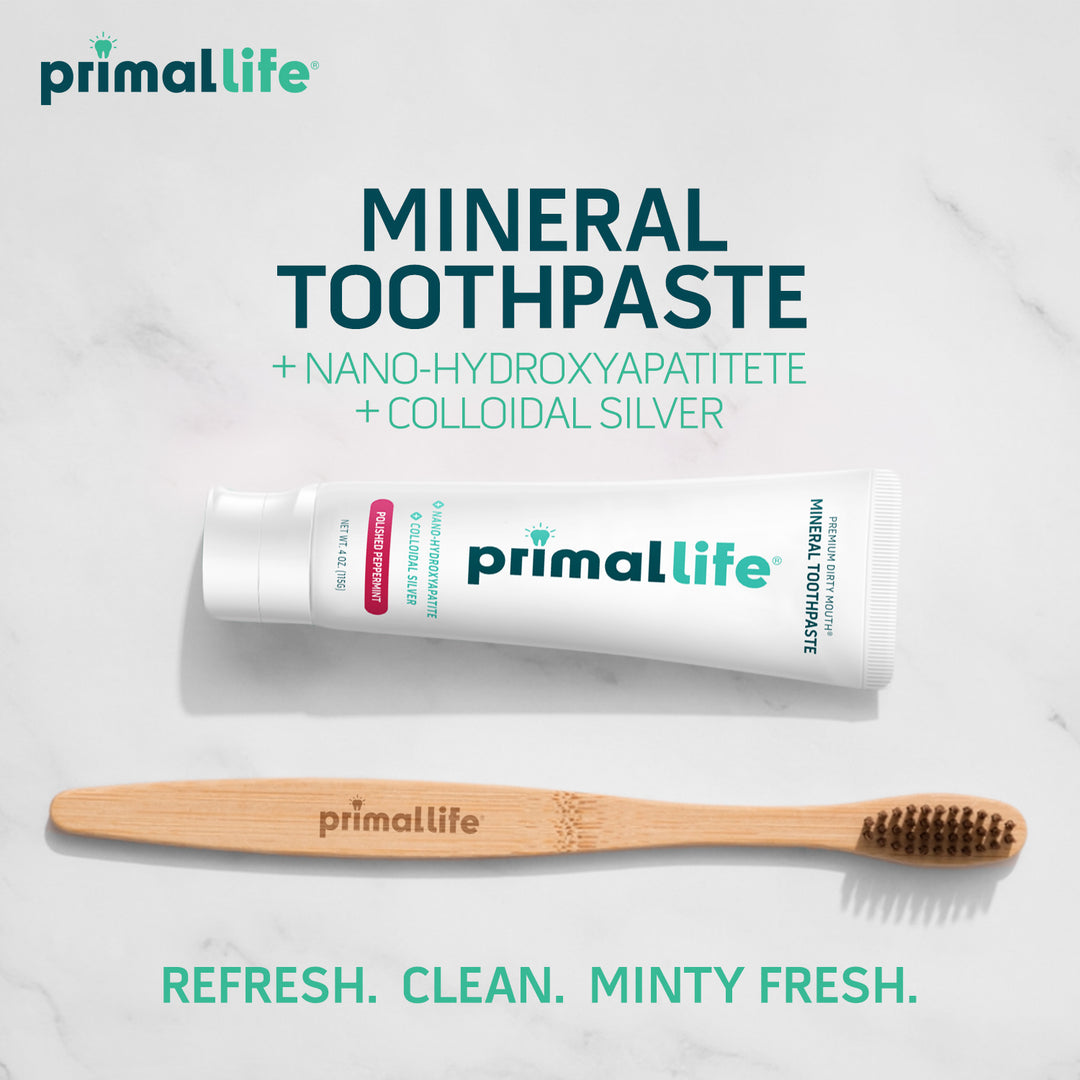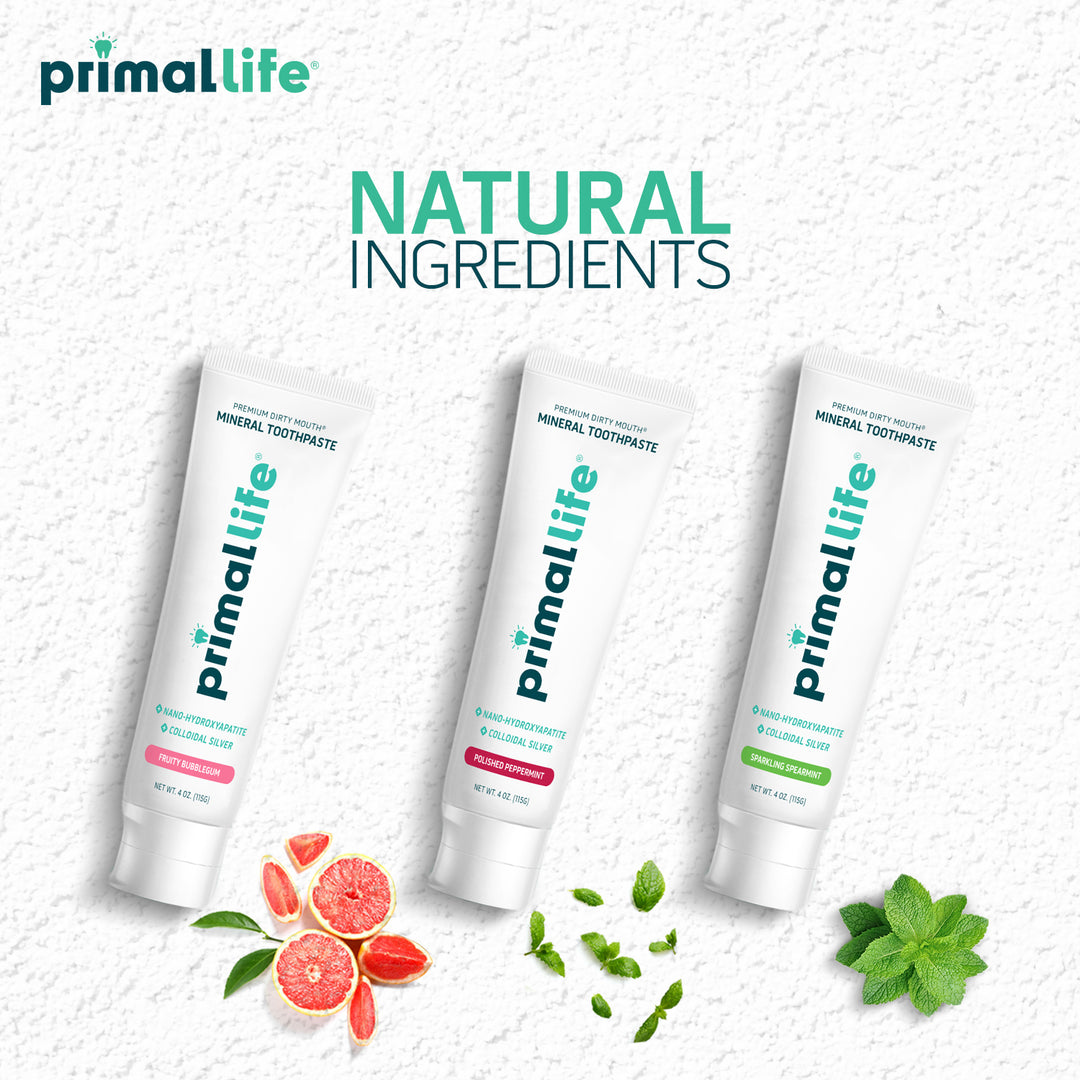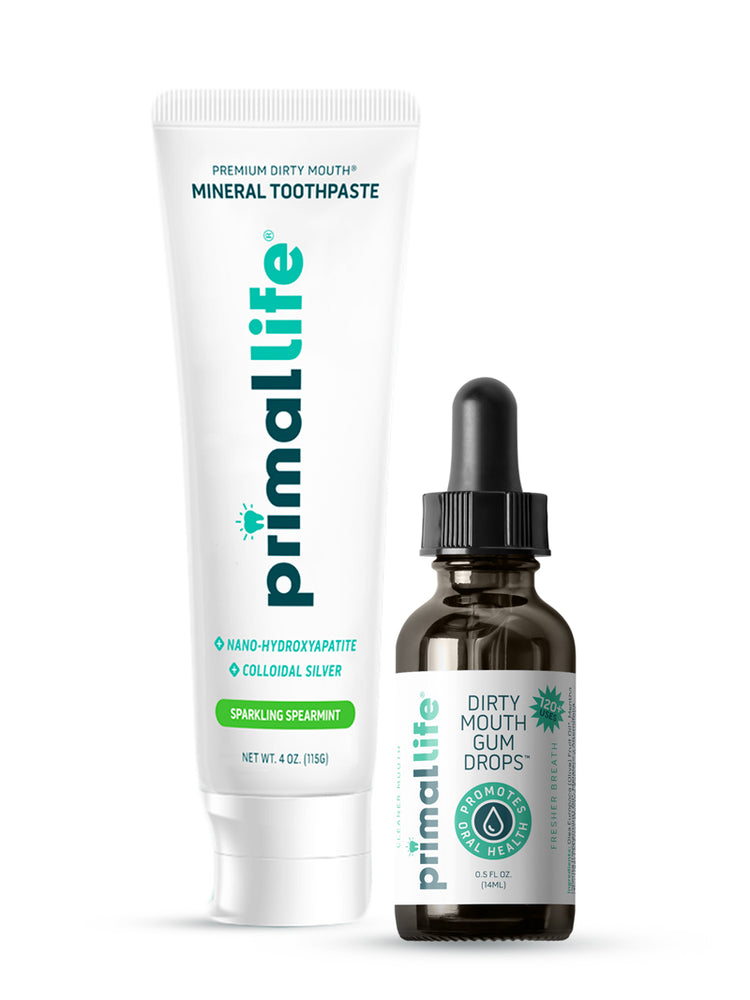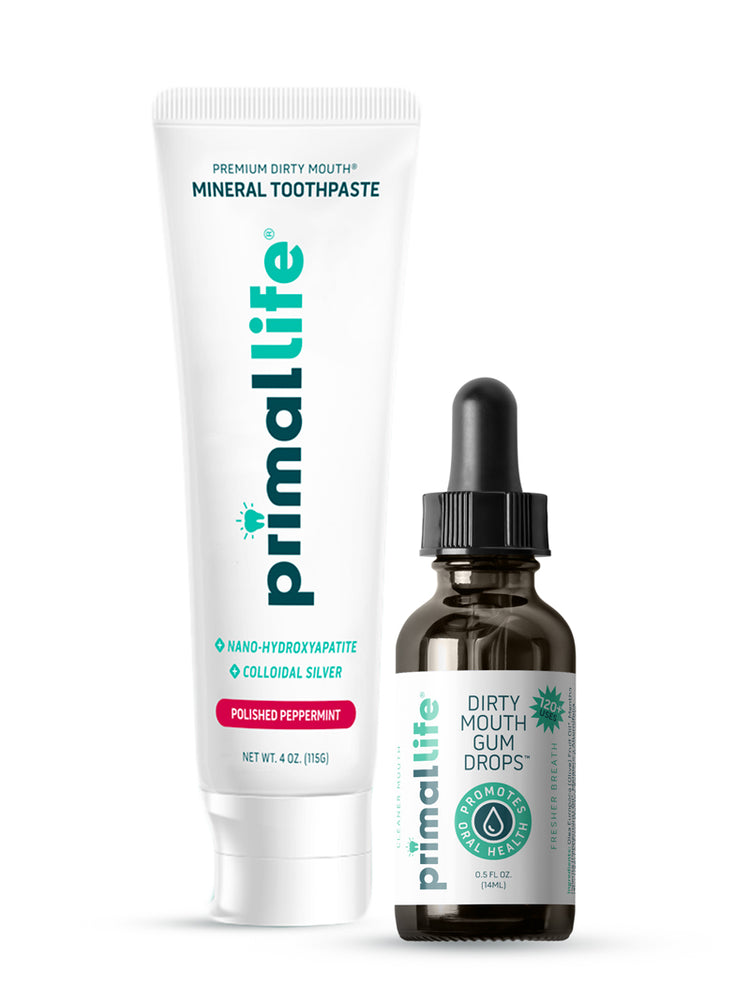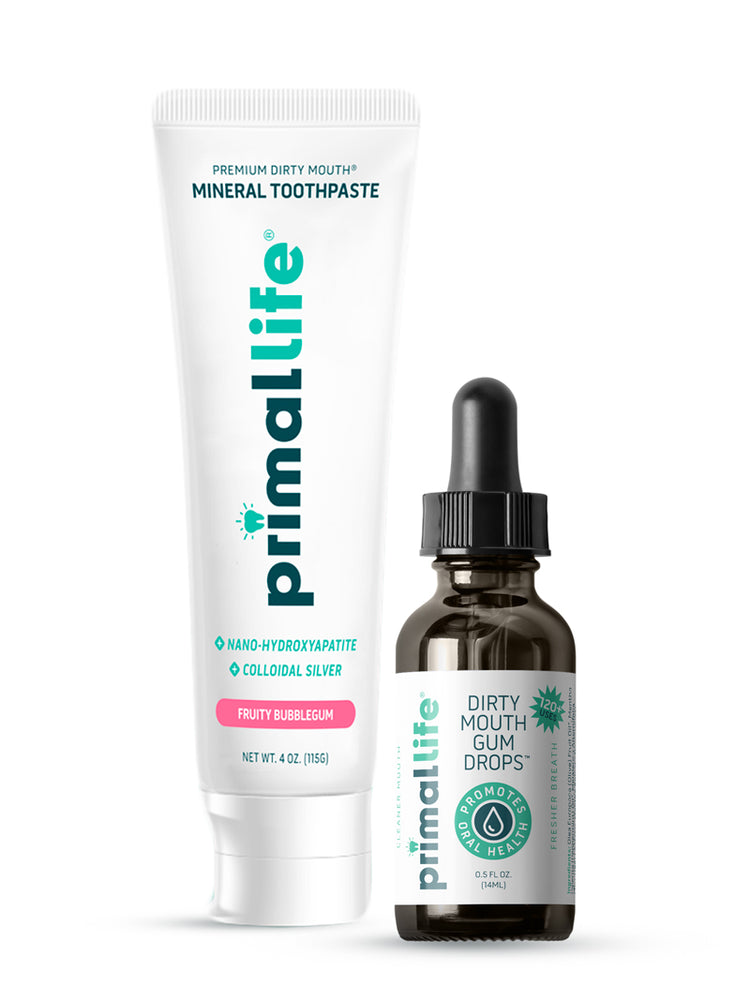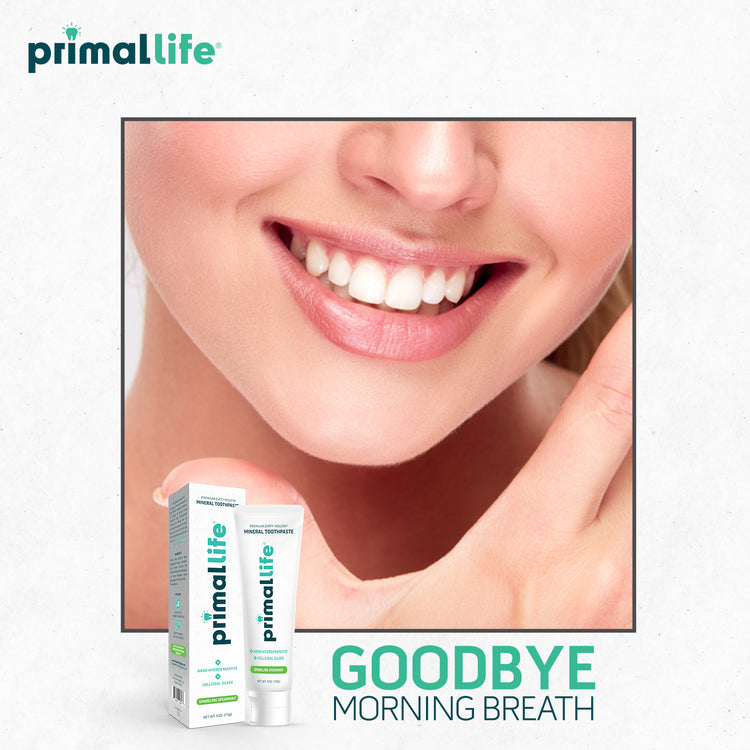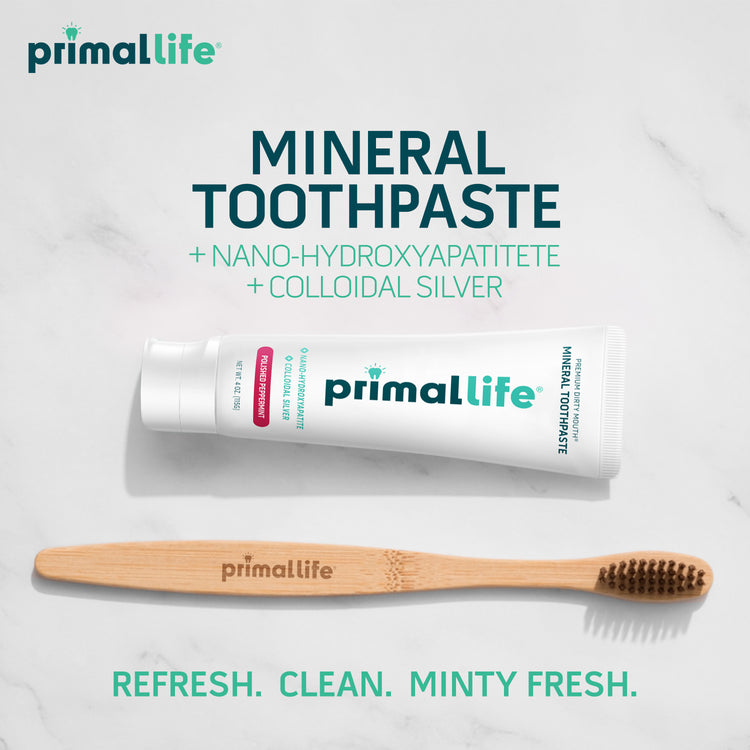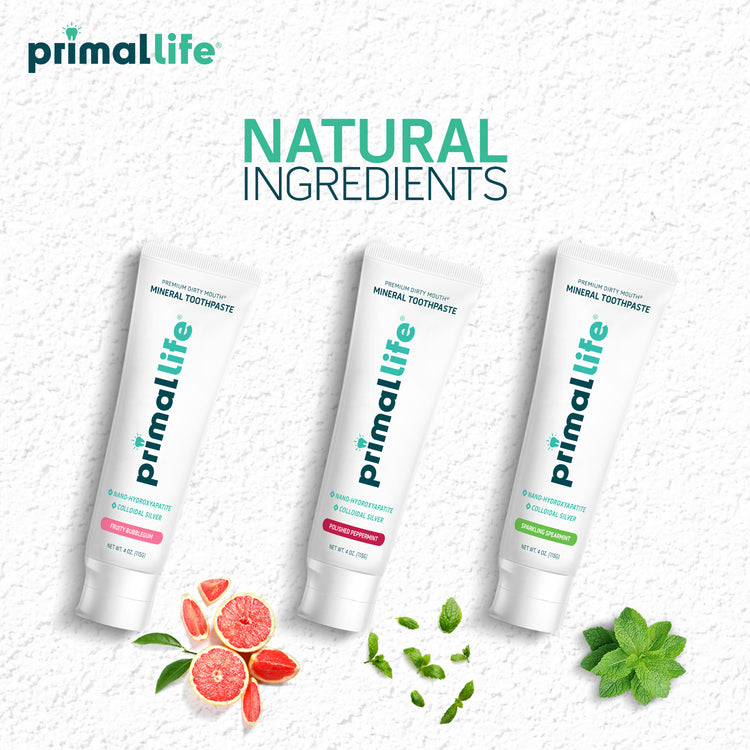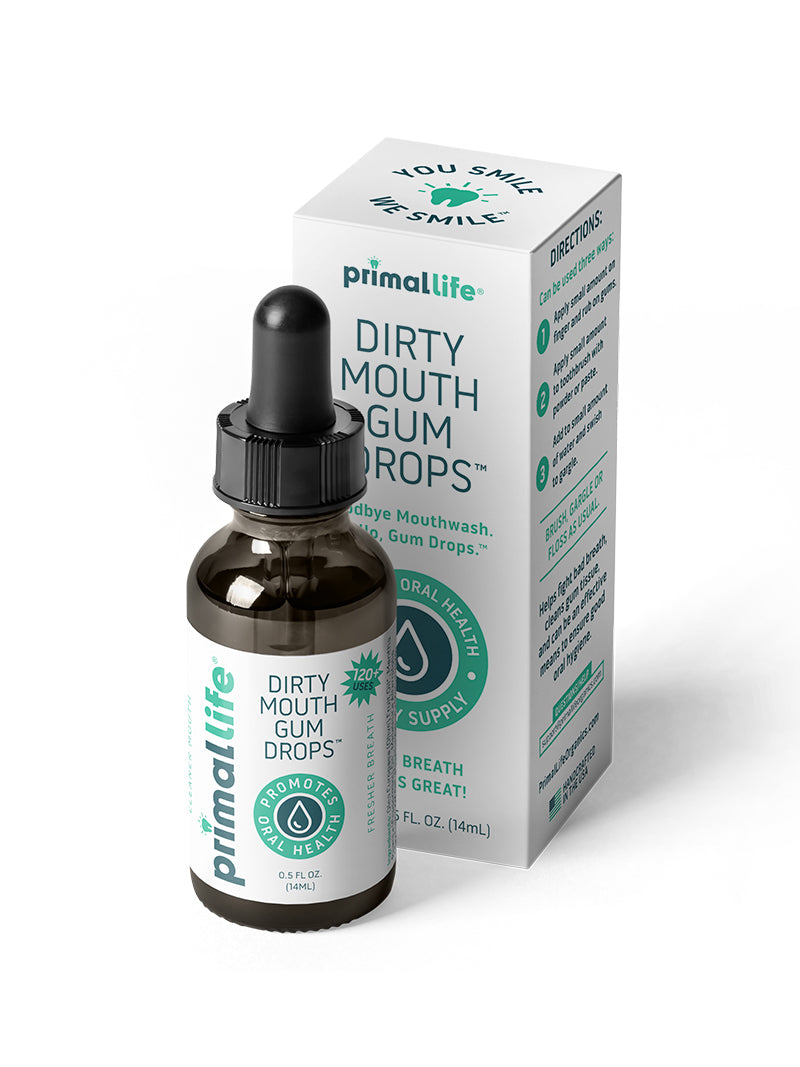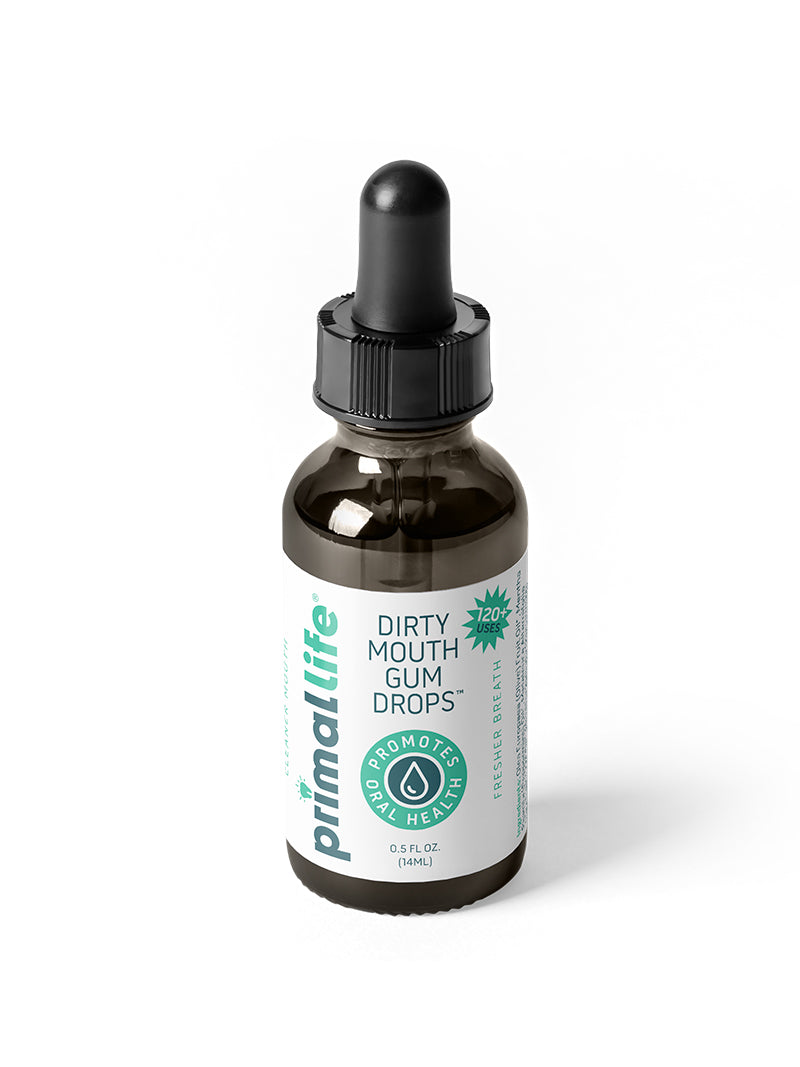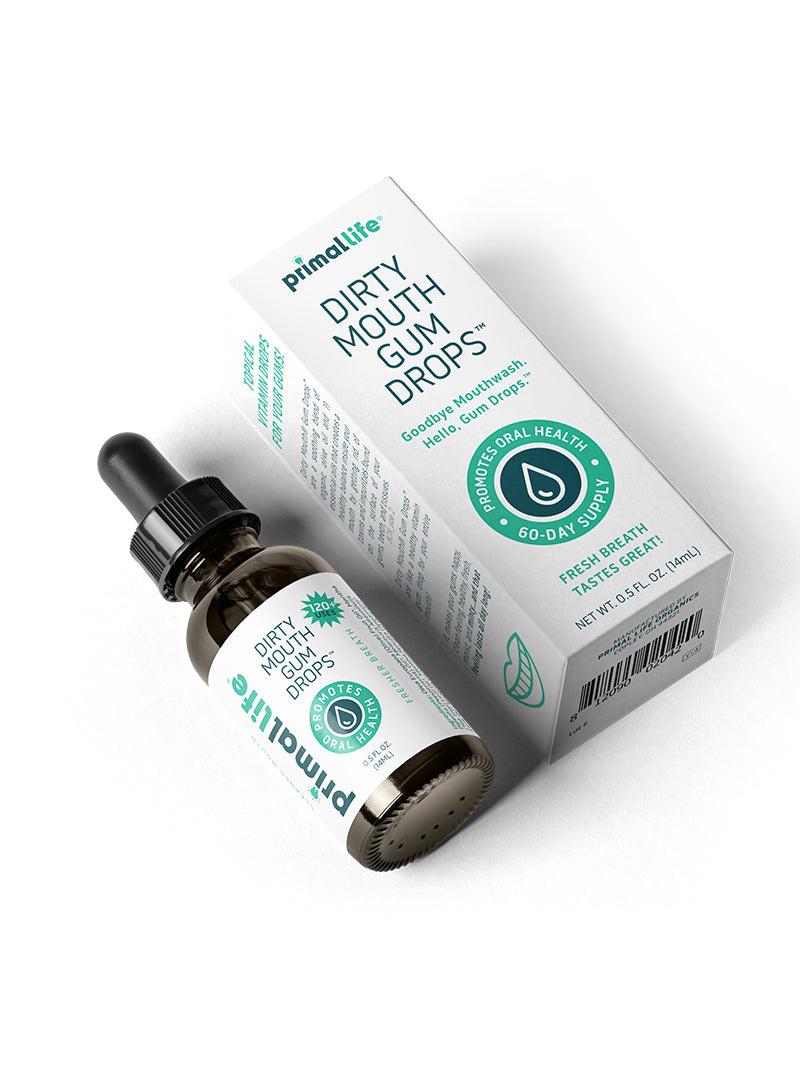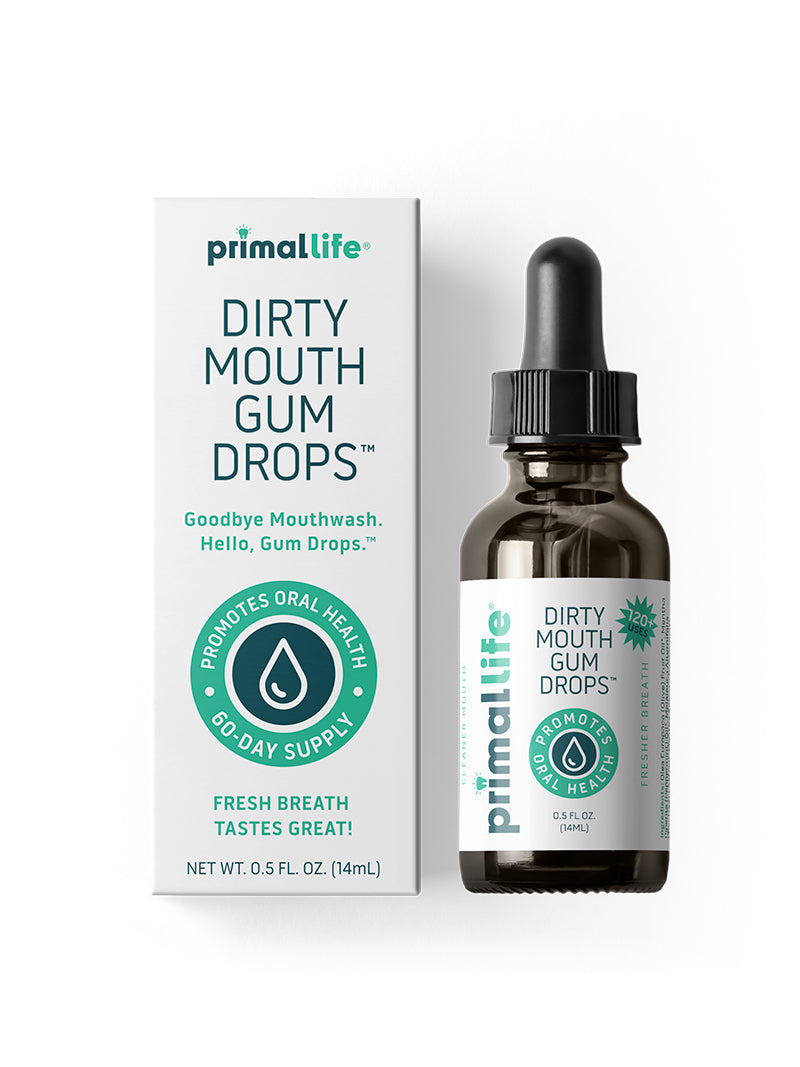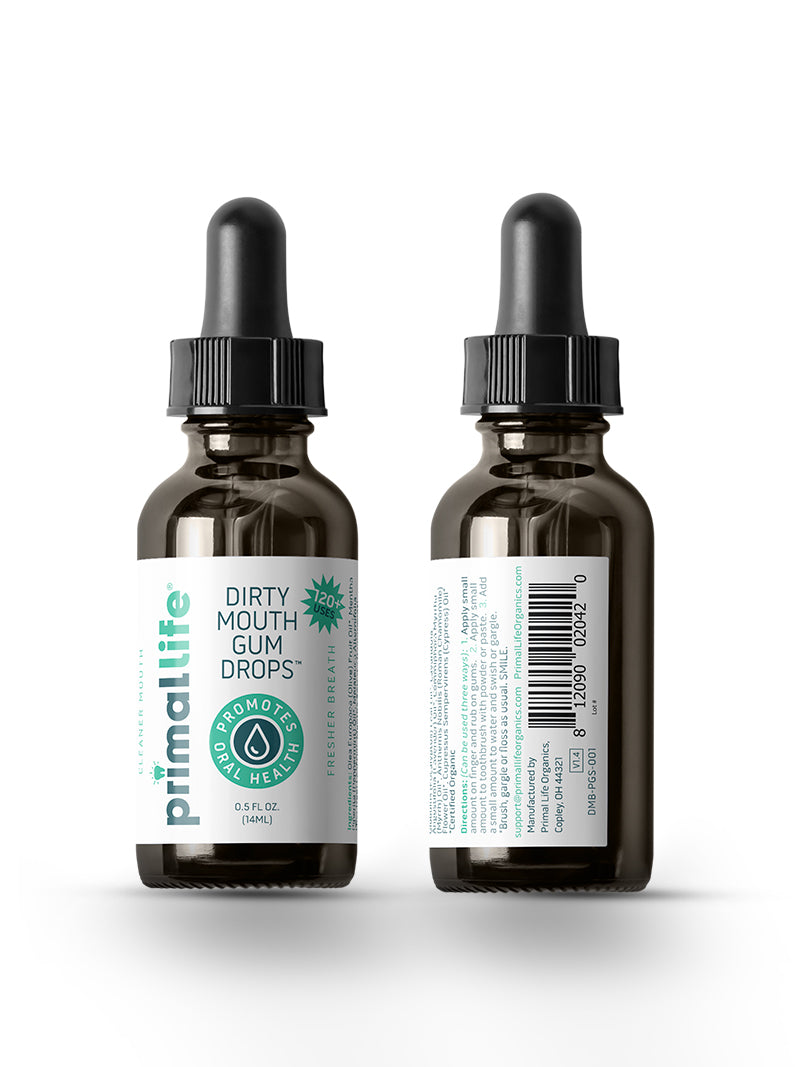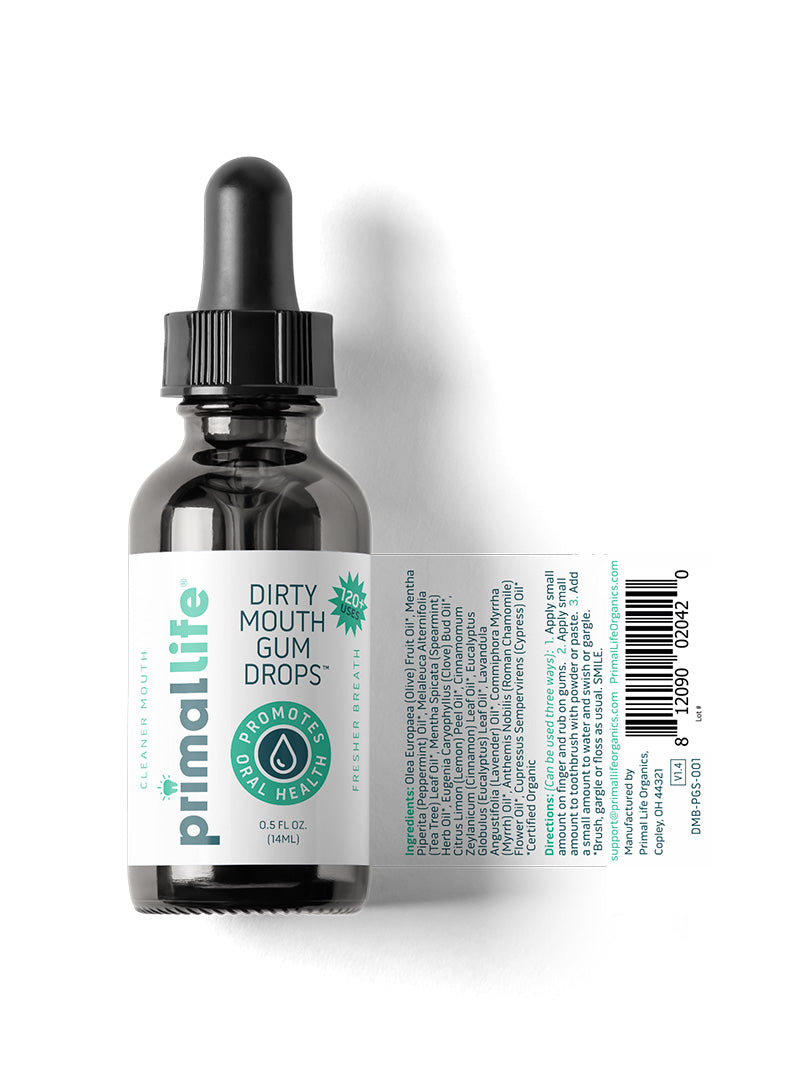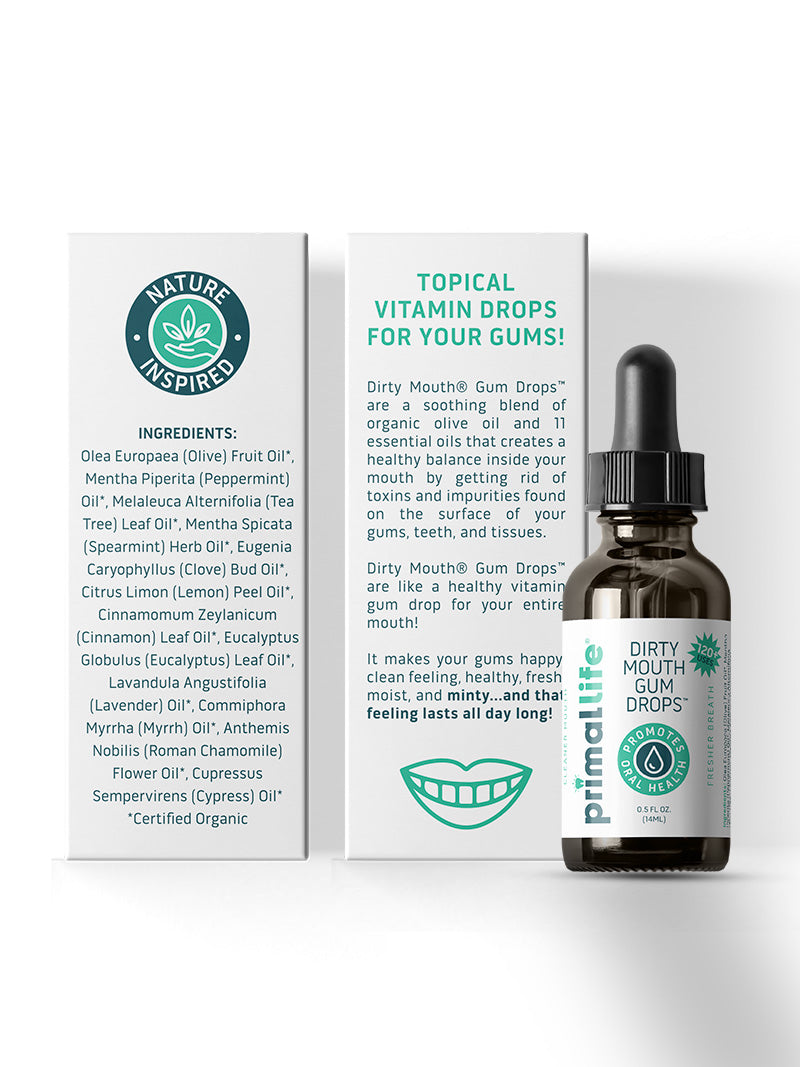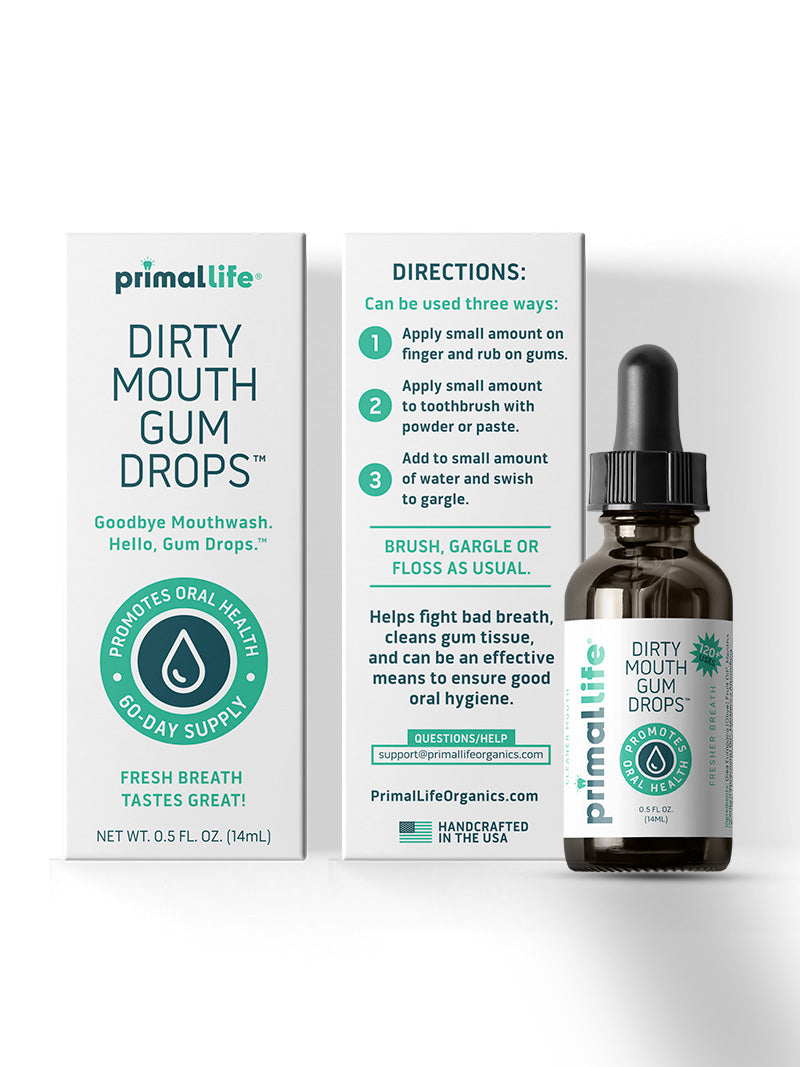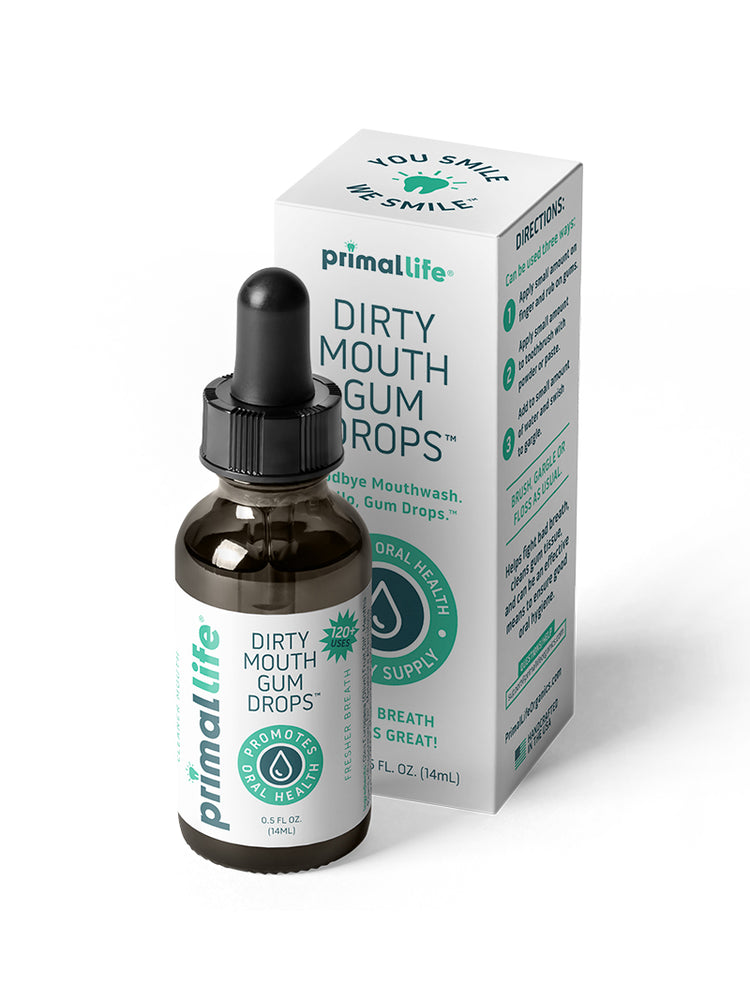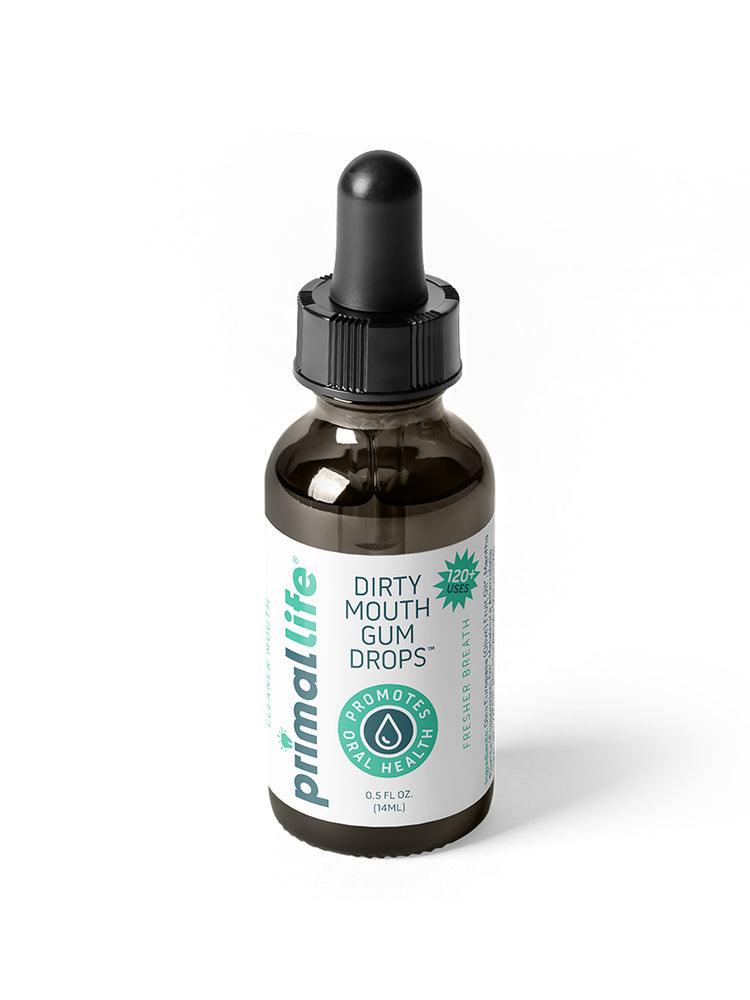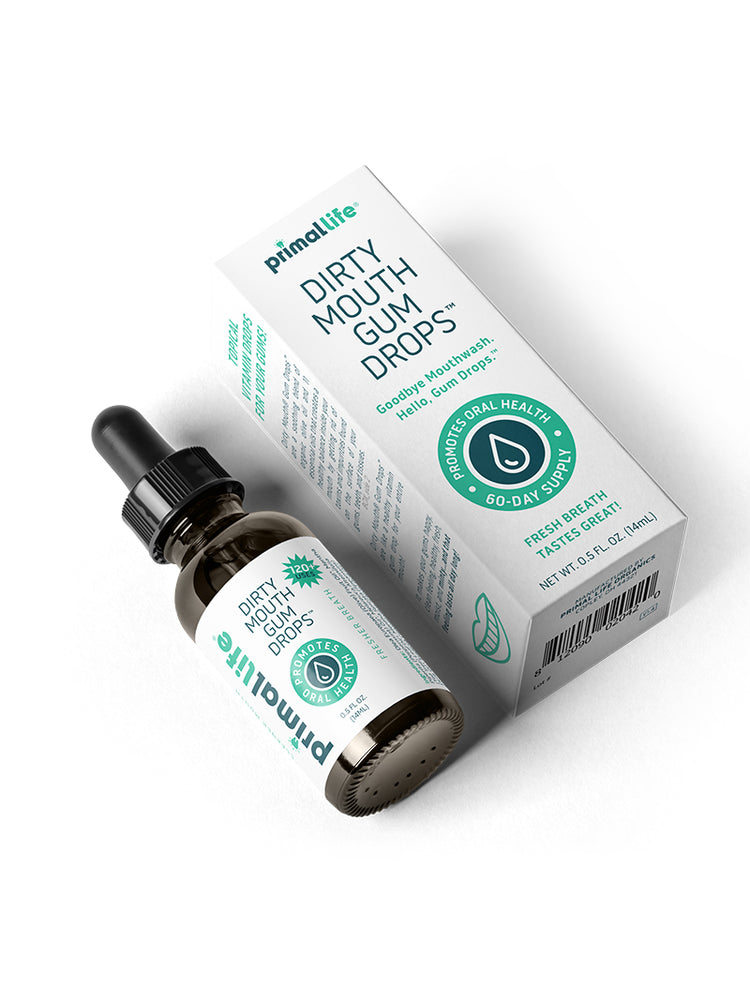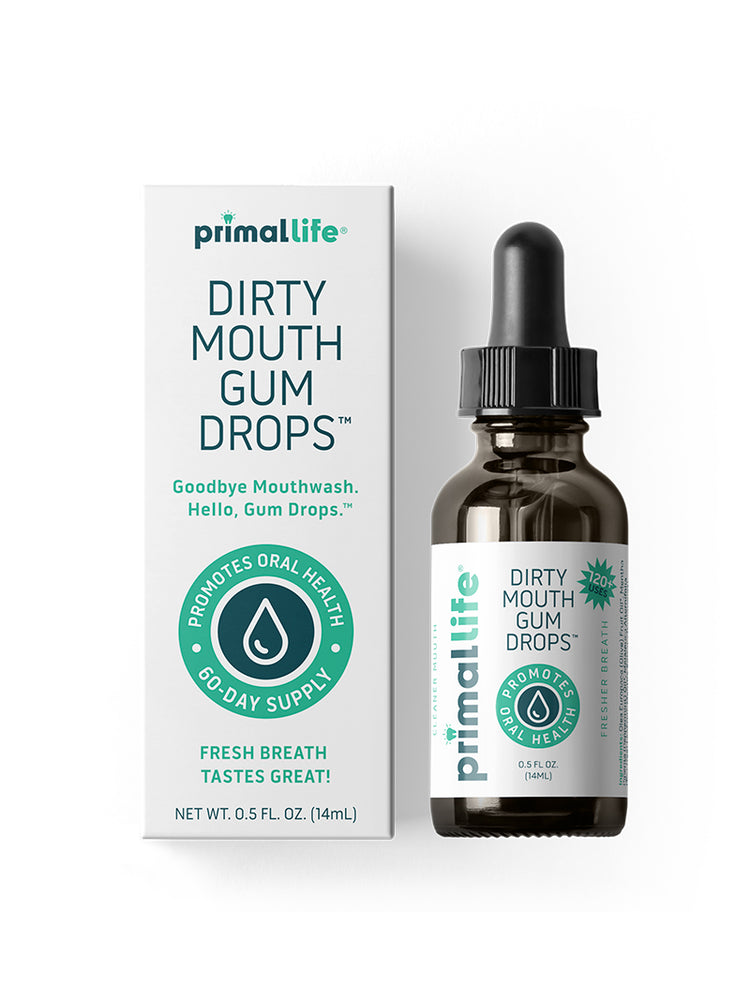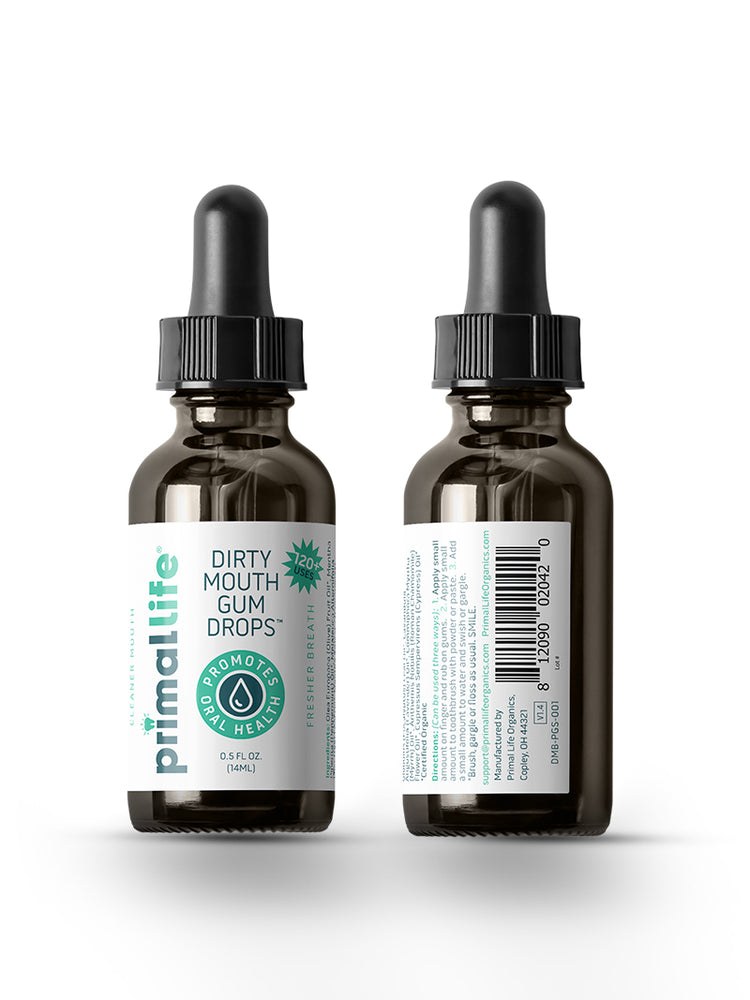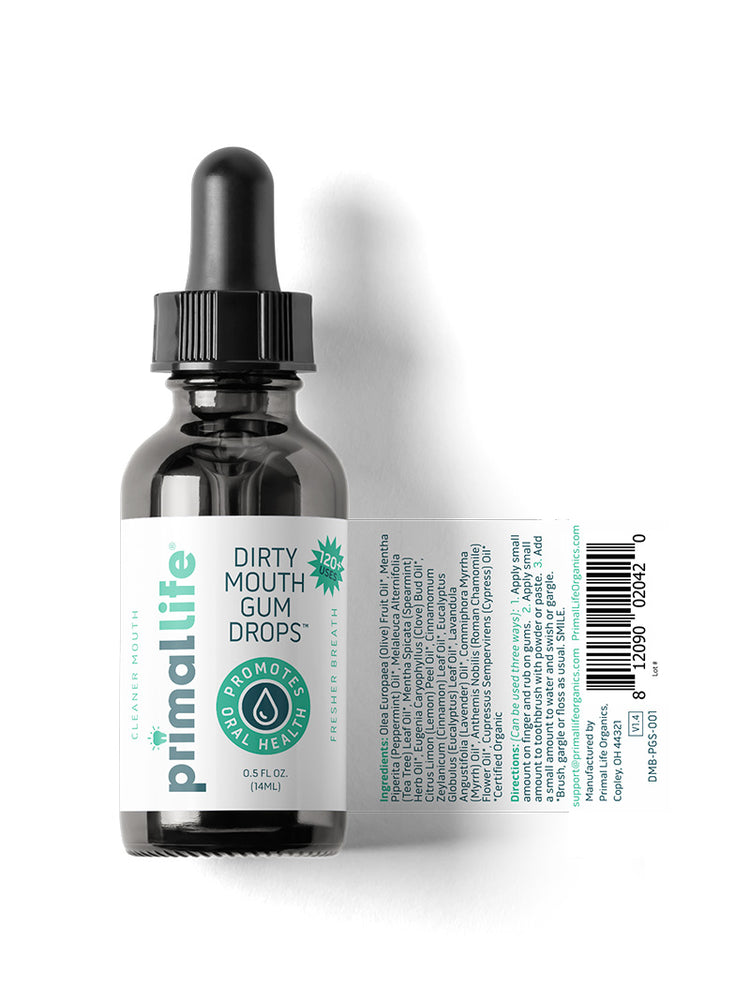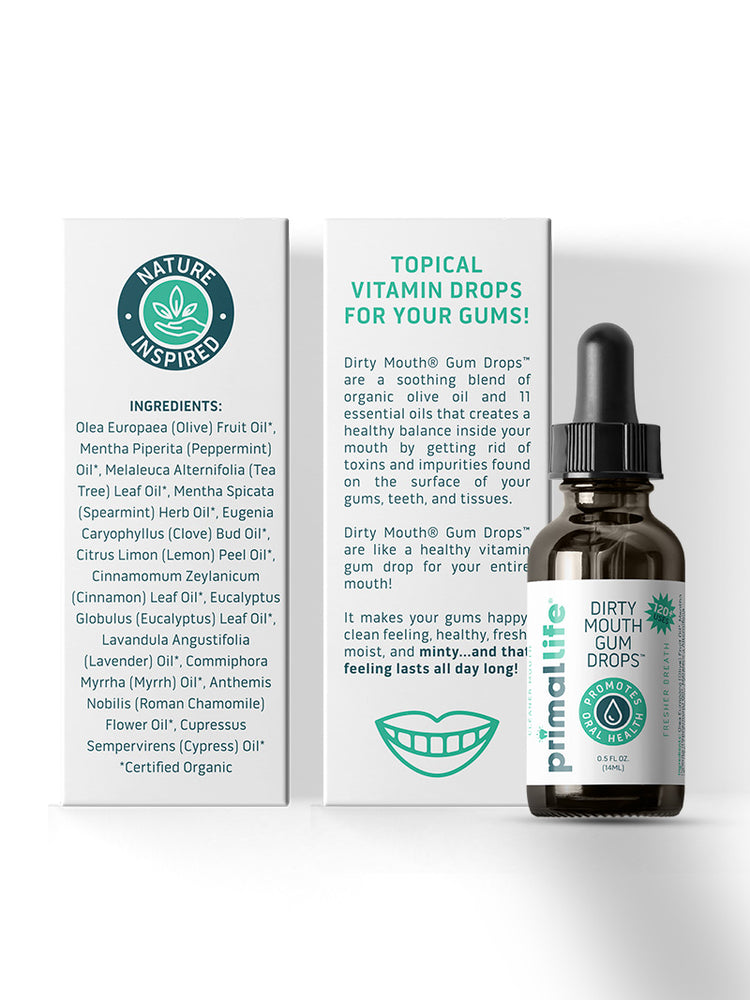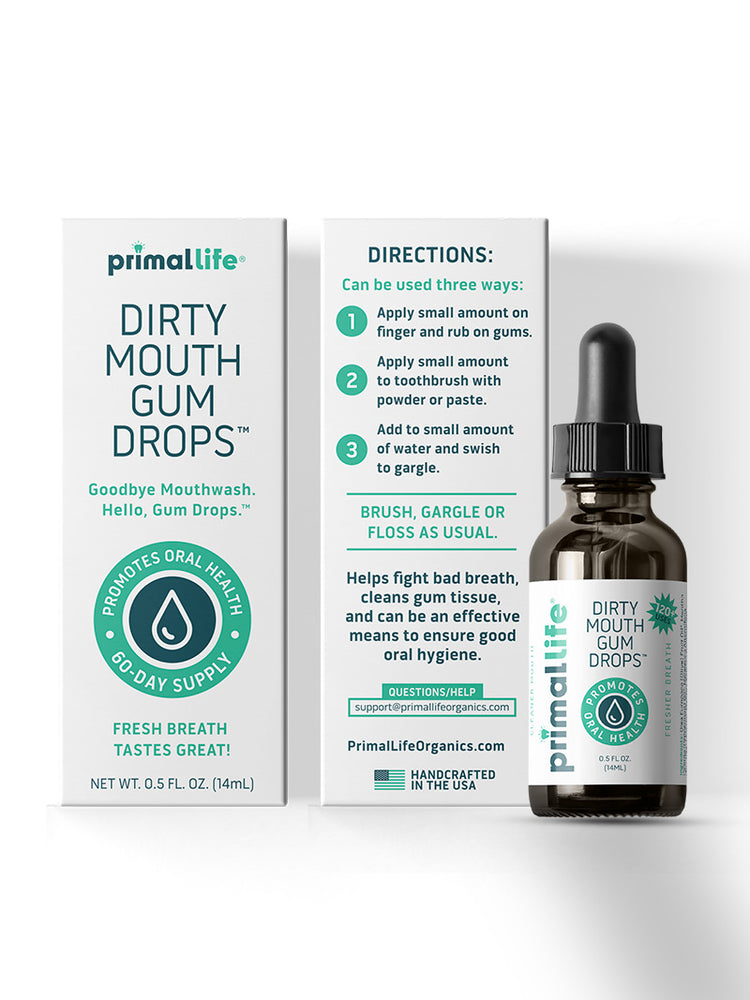Baking Soda Detox: The Household Ingredient That Can Change Your Mouth

Baking soda is one of the most underrated ingredients sitting in your pantry right now. Priced at just a couple of dollars in its small cardboard box, baking soda is a superhero in disguise.
For less money than your morning cup of coffee, baking soda has the power to clean your bathroom, brighten your smile, and everything in between.
If you want to maximize the value of this common household ingredient instead of losing it behind the bags of flour and sugar, use it to detoxify and revitalize your mouth. Here’s everything you need to know about the baking soda detox to get started!
Baking Soda: The Universal Ingredient
Baking soda is a simple chemical compound also known as sodium bicarbonate. As an alkaline substance with a pH of 8.1, baking soda produces carbon dioxide gas when combined with an acidic substance like vinegar. This reaction is easy to create, which explains why every elementary school science fair features at least one volcano powered by the carbon dioxide response between baking soda and vinegar.
Baking soda’s alkaline properties make it valuable for a wide range of uses. Some people claim that baking soda is the ultimate skincare ingredient. Others swear it’s the best natural cleaner out there. They’re all correct! Baking soda truly is a universal ingredient.
Homemade Skincare Products
Facial scrubs, deodorant, bath bombs, and many other skincare products contain baking soda for its detoxification and odor neutralizing capabilities. Thanks to its anti-inflammatory and antiseptic properties, baking soda also has a history of soothing diaper rash, poison ivy, psoriasis, and eczema.
Kitchen and Bathroom Cleaner
There are plenty of expensive kitchen and bathroom cleaners out there, but sometimes all you need is a box of baking soda. This versatile cleaner can remove tough stains, kill bacteria, and eliminate foul odors when blended with water or vinegar. Think of the oven stains, microwave grime, and bathtub rings that you could clean with something as simple as baking soda.
Natural Antacid
If you don’t have Tums on hand, baking soda is an easy natural alternative! Just a ¼ teaspoon of baking soda in a glass of water delivers enough antacid power to combat painful acid reflux or heartburn.
Laundry Booster
Let's face it, doing the laundry can be daunting and downright ugly. Especially if you have young kids who think their shirts and pants double as napkins! Fortunately, baking soda addresses laundry woes by lending its versatility to your washing machine.
Whether you're washing workout shirts stained with sweat or your toddler's pants covered in jelly, baking soda's alkalinity helps to dissolve dirt and grime. The result? Brighter, cleaner clothes that you can fold without cringing.
Odor Neutralizer
Odors don’t stand a chance against baking soda. Sprinkle baking soda or blend it with essential oils to fight garbage odors, stinky shoes, and other sources of unpleasant smells.
Try sprinkling baking soda at the bottom of your trash can, down the garbage disposal, and over carpets to neutralize nasty odors before they make you gag.

Why Is Baking Soda a Game Changer For Your Mouth?
The power of baking soda doesn’t stop in your kitchen, bathroom, and laundry room! A growing body of research indicates that baking soda is also a game changer for your oral health.
Neutralizes Acid
Acidity is your mouth’s worst enemy. As soon as acidic substances touch your teeth, they begin breaking down enamel by aggressively leaching minerals. These minerals like calcium and phosphorous are supposed to keep your teeth hard and strong, so you can imagine the devastating damage that occurs when minerals are drawn away.
That’s right; your teeth quickly become vulnerable to decay, cavities, and sensitivity.
Most acids end up in the mouth through the consumption of refined, high-sugar foods and beverages like soda and sweets. However, improving your diet can’t shield your teeth from acids entirely. Even healthy foods like dairy, tomatoes, and citrus fruits unleash acidity into your mouth.
That’s where baking soda comes in handy! Sodium bicarbonate is proven to reduce acidity in the mouth by increasing the pH of your saliva to its ideal threshold of 7.0. Saliva that maintains an alkaline pH has the power to effectively dilute harmful acids and nourish enamel with essential minerals.
Fights Plaque and Bacteria
When it comes to fighting plaque-causing bacteria in the mouth, toothpastes containing baking soda are more effective than toothpastes without baking soda.
Plaque is a sticky film of bacteria that accumulates everywhere in your mouth: on your teeth, between your teeth, and below the gum line. This microbial biofilm contains a diverse range of bacteria that sometimes resist antimicrobial agents — like conventional toothpaste! — and thrive in the dark crevices of the mouth.
If your brushing and flossing habits fail to remove plaque from your teeth and gums on a regular basis, the sticky substance hardens into tartar. This doesn’t take long — even just one day of plaque accumulation can morph into hard tartar crystals as minerals in your saliva combine with the plaque.
Tartar, also known as dental calculus, isn’t sticky or colorless like plaque. It’s a hard, crusty, yellow or brown substance that bonds harshly to your teeth. There’s no way around it: plaque and tartar both pose serious threats to your teeth, gums, and overall health.
Research shows that toothpaste formulated with baking soda controls plaque more effectively than the “normal” toothpaste sitting on your bathroom sink right now. Since baking soda molecules dissolve quickly, they can easily sneak into the dark, tight spaces between your teeth to fight bacteria where it matters most.
As it fights the harmful effects of plaque, baking soda simultaneously prevents gum disease. Gingivitis and periodontitis never have the chance to form if baking soda continues to disrupt the accumulation of biofilm along the teeth and gums.
Whitens Teeth
Baking soda is also a favorite DIY ingredient for at-home teeth whitening procedures, and for good reason! Research suggests that toothpaste containing baking soda can remove stains and brighten teeth.
This method is considerably safer and more gentle than conventional peroxide whitening systems using carbamide or hydrogen peroxide as the active ingredient.
As soon as hydrogen peroxide encounters the surface of your tooth, it passes through the enamel and breaks down the stain molecules responsible for visible discoloration. This reduces the appearance of stains, but it also compromises the structure and integrity of your tooth enamel.

Tooth enamel is supposed to create a protective barrier around your teeth… but it can’t do its job if it’s continually bombarded by hydrogen peroxide. This is why ongoing hydrogen peroxide whitening treatment can cause extensive damage to the teeth, including these complications:
- Increased porosity of surface enamel
- Loss of minerals from teeth, leading to rough and brittle enamel
- Destruction of balance oral biome
- Gum irritation
Baking soda offers a natural whitening alternative by gently removing unsightly stains as you brush.
Prevents Bad Breath
Your oral health isn’t just about how your teeth look. The condition of your teeth and gums also influence your breath. If you’re constantly humiliated by bad breath, also known as halitosis, baking soda may help.
Halitosis develops when “bad” bacteria outnumber the “good” bacteria in your mouth. Conventional oral care products like fluoride toothpaste make this problem worse, not better, by exterminating all bacteria and destroying the balance of your oral microbiome.
By targeting harmful bacteria and restoring the pH of your saliva, baking soda gives your mouth the environment it needs to kick unpleasant breath for good.
Baking Soda For Your Mouth: Simple Guidelines
Everything about baking soda is quick and easy, including adding it into your oral care routine. Sodium bicarbonate works efficiently in mouthwash and toothpaste formulas, so pick your favorite and watch the magic happen!
Homemade Mouthwash
If you have commercial mouthwash sitting on your bathroom sink, I want you to open the lid, pick up the bottle, and pour it down the drain! Alcohol-based mouthwash products are harsh, astringent, and actually hurt your teeth and gums.
You need a balanced oral environment that’s rich in “good” bacteria to protect and remineralize your teeth. But conventional mouthwash achieves the exact opposite and may even accelerate tooth decay. Do your mouth a favor by formulating your own mouthwash with baking soda and essential oils instead.
Essential oils are highly concentrated botanical oils used since ancient times for their therapeutic properties since ancient times. Tea tree oil is one of the most popular essential oils used in DIY mouthwash because it’s such a versatile oil with numerous documented research studies to support its therapeutic powers.
Research shows that tea tree essential oil can naturally fight bacterial infections and kill oral pathogens. This makes it an excellent natural way to counteract gingivitis, reduce inflammation, and prevent the conditions that plaque and tartar love.
Blend the following ingredients to make your own remineralizing mouthwash:
- 2 drops tea tree essential oil
- 2 drops peppermint essential oil
- ½ cup filtered water
- 2 tsp baking soda
Just swish and spit twice a day to combat unwanted plaque and keep your smile looking as happy as you feel.
Baking Soda Toothpaste
I’ve talked extensively about conventional “toxi-paste” and the threats it poses to your oral health. Fortunately, it’s easy to find a natural alternative that harnesses the power of baking soda to fight the formation of plaque.
Don’t just settle for the first non-fluoride toothpaste you find. Select a clay-based tooth powder that blends baking soda with mineral-rich ingredients that pack the most power into your daily brushing routine.

Dirty Mouth Tooth Powder is my favorite. It’s a simple blend of natural ingredients proven to actively improve the strength and health of your entire mouth. The baking soda, clays, and oils in this tooth powder deliver impressive results:
- Strong teeth and enamel
- Fights harmful bacteria and protect healthy bacteria
- Reduce and prevent sensitivity by remineralizing teeth
- Fight plaque and reducing inflammation
- Neutralize bad breath
If brushing with a clay-based tooth powder sounds strange, don’t worry. Once you start, you’ll wonder how you ever used to feel satisfied with toxic toothpaste.
The Easiest DIY Baking Soda Detox
Still wondering why you need a baking soda detox at all? Your teeth might feel just fine, thank you very much. But the truth is that your oral health could be vulnerable in ways you don’t yet see or feel.
After all, our teeth and gums are exposed to toxins like pesticides, fluoride, and triclosan every single day. Since your mouth is the gateway to your body, it takes the brunt force of bacteria, viruses, pathogens, and infections.
So what happens when the health of your mouth becomes compromised by toxins and fails to defend your mouth and body from incoming threats?
Unfortunately, you start to see the signs of this in and beyond your mouth. Cavities, inflamed gums, headaches, fatigue, anxiety, depression, digestive problems, and skin rashes are all signs that your body needs to detoxify pronto.
Yet we already know that standard toothpaste ingredients offer very little protection against prevalent toxins because they include toxic chemicals themselves! Fluoride is a prime culprit. It’s included in nearly every “normal” toothpaste on store shelves, but it’s actually a neurotoxin that helps toxic bacteria target the healthy tissues and cells in your body.
When you’re using only traditional oral care products, your mouth doesn’t stand a chance. It’s easy to perform a natural baking soda detox by using a fluoride-free tooth powder made with baking soda and clays instead of harsh chemicals.
As you brush with baking soda and clays instead of fluoride and neurotoxins, your mouth will finally receive the opportunity it needs to flush out plaque, bad bacteria, and sources of inflammation. And trust me, it won’t take long to see and feel the difference.
Signs You’re Using Too Much Baking Soda
Of course, everything is best in moderation. It’s possible to use too much baking soda. This mild abrasive can erode your enamel if used excessively, so it’s best to dilute baking soda into water, toothpaste, or another substance.
When used in small amounts your tooth powder, baking soda provides gentle cleaning action without threatening the integrity of your enamel. However, apply baking soda directly to your teeth or leaving it on for more than a few minutes shouldn’t be done regularly.
If you begin to feel extra sensitivity along your teeth, it could be a sign that you’re using too much baking soda.
Protecting Oral Health After a Baking Soda Detox
A baking soda detox is an excellent first step if you want to remove impurities from your mouth and reset your smile. However, you need more than baking soda to perform a full oral health.
If you’re serious about giving your mouth an oral detox, you need the right tools to purify your system from toxins. That’s precisely why I created the 21-Day Oral Detox Kit.
This combination of gum serum, tooth powder, charcoal toothbrush, and copper tongue scraper will keep you healthy and better equipped to fight bacterial and viral invasions. It’s so simple and sustainable that you can maintain your oral detox routine long after Day 21 for lasting daily maintenance.
Once you experience the dramatic difference an ingredient as simple as baking soda can make in your mouth, you’ll be eager to perform a more comprehensive 21-day oral detox. It will kick-start the healing mechanisms within your mouth, restore minerals to your teeth, remove dangerous bacteria and toxins, and so much more.
Most importantly, this 21-day detox will help you establish better oral care habits that you can continue long after your detox ends. You’ll never return to fluoride toothpaste again!
Resource Links
https://www.encyclopedia.com/science-and-technology/chemistry/compounds-and-elements/baking-soda
https://cen.acs.org/articles/96/web/2018/01/baking-soda-help-boost-killing.html
https://www.ncbi.nlm.nih.gov/pubmed/25445259
https://www.ncbi.nlm.nih.gov/pmc/articles/PMC5773983/
https://www.ncbi.nlm.nih.gov/pmc/articles/PMC3800408/
https://www.ncbi.nlm.nih.gov/pubmed/19278079
https://www.sciencedirect.com/science/article/pii/S0002817717308231
https://www.researchgate.net/profile/Mark_Putt/publication/24193168_A_four-week_clinical_study_to_evaluate_and_compare_the_effectiveness_of_a_baking_soda_dentifrice_and_an_antimicrobial_dentifrice_in_reducing_plaque/links/555b614a08ae91e75e765da8/A-four-week-clinical-study-to-evaluate-and-compare-the-effectiveness-of-a-baking-soda-dentifrice-and-an-antimicrobial-dentifrice-in-reducing-plaque.pdf
https://jada.ada.org/article/S0002-8177(17)30822-X/fulltext
https://link.springer.com/article/10.1007/s10266-014-0189-7
https://www.sciencedirect.com/science/article/pii/S0002817717308115
https://www.ncbi.nlm.nih.gov/pubmed/11524864
https://www.ncbi.nlm.nih.gov/pmc/articles/PMC1360273/
https://www.ncbi.nlm.nih.gov/pmc/articles/PMC4054083/







